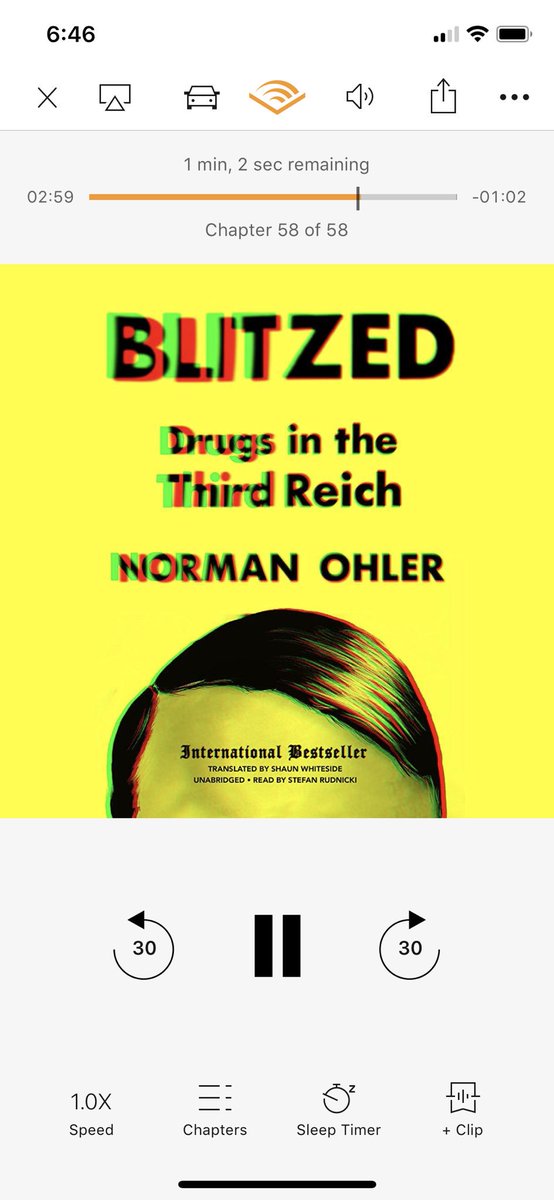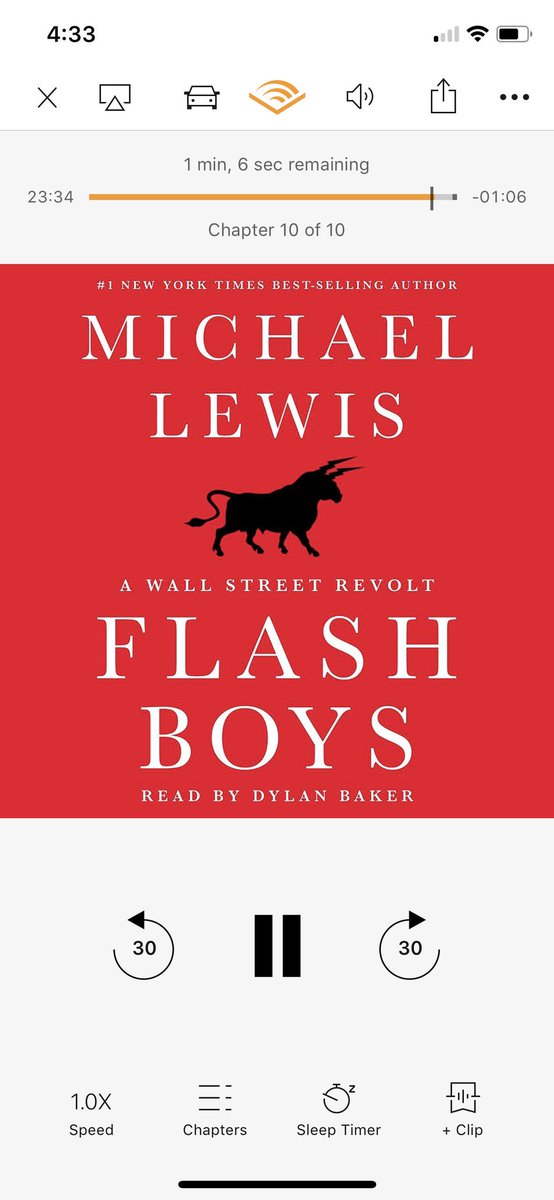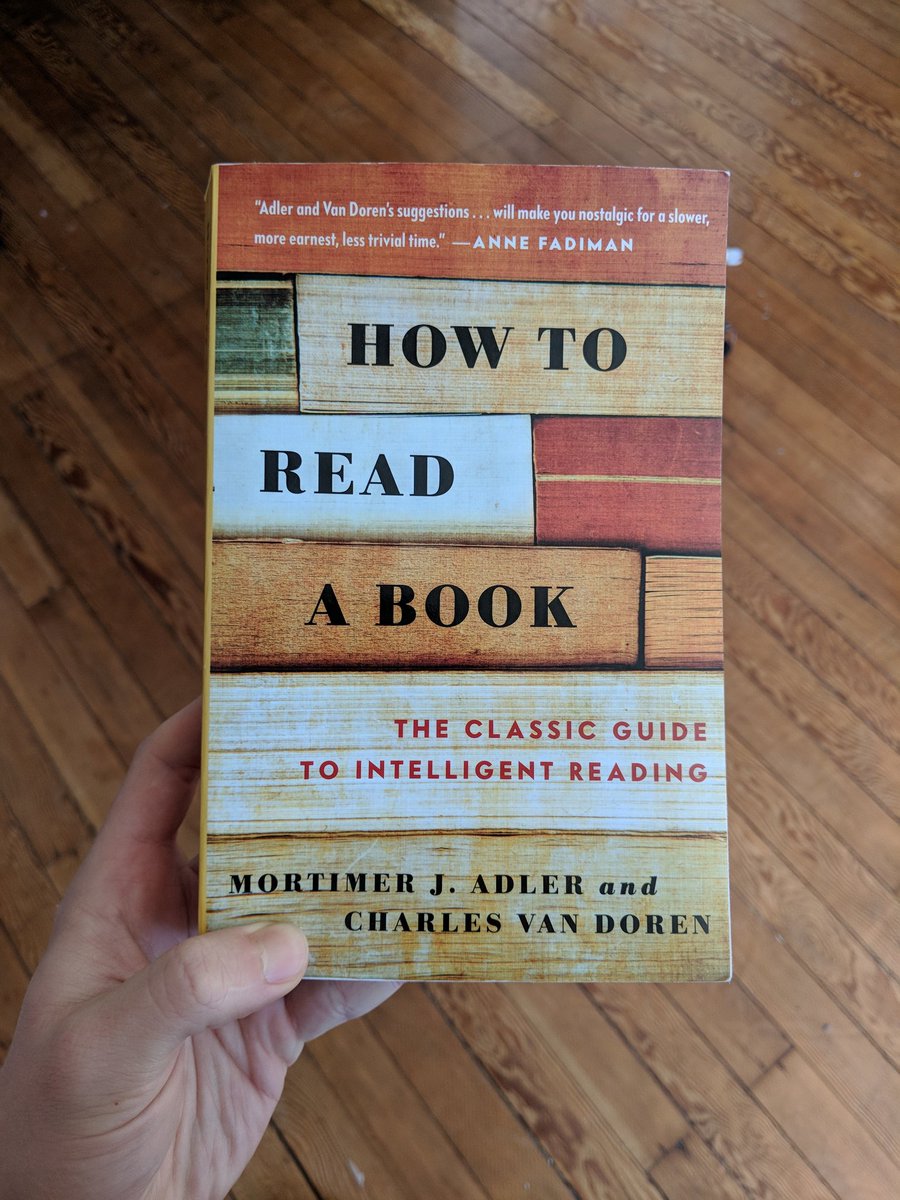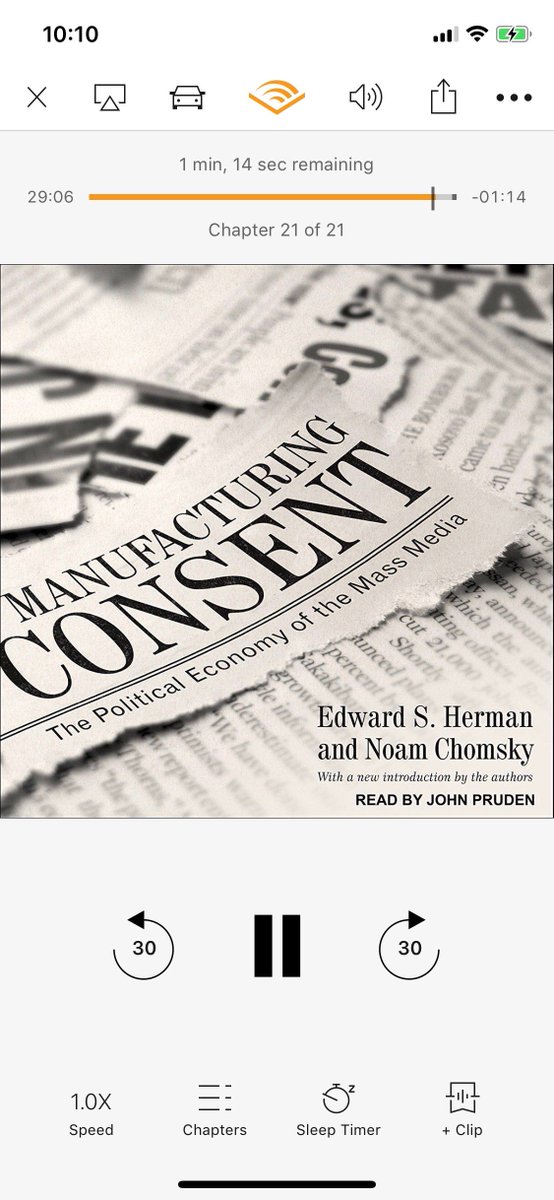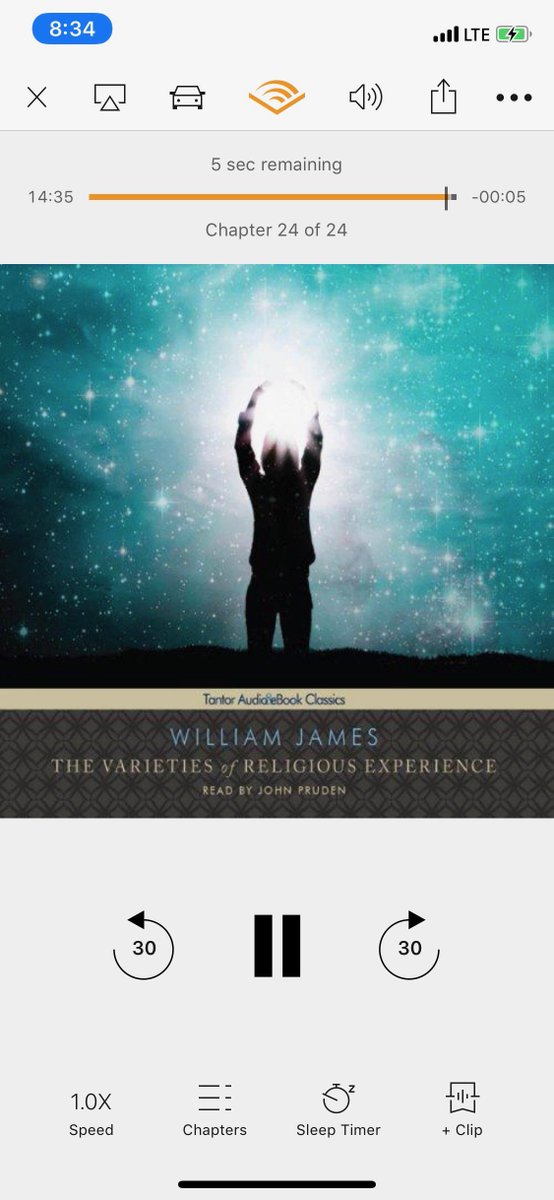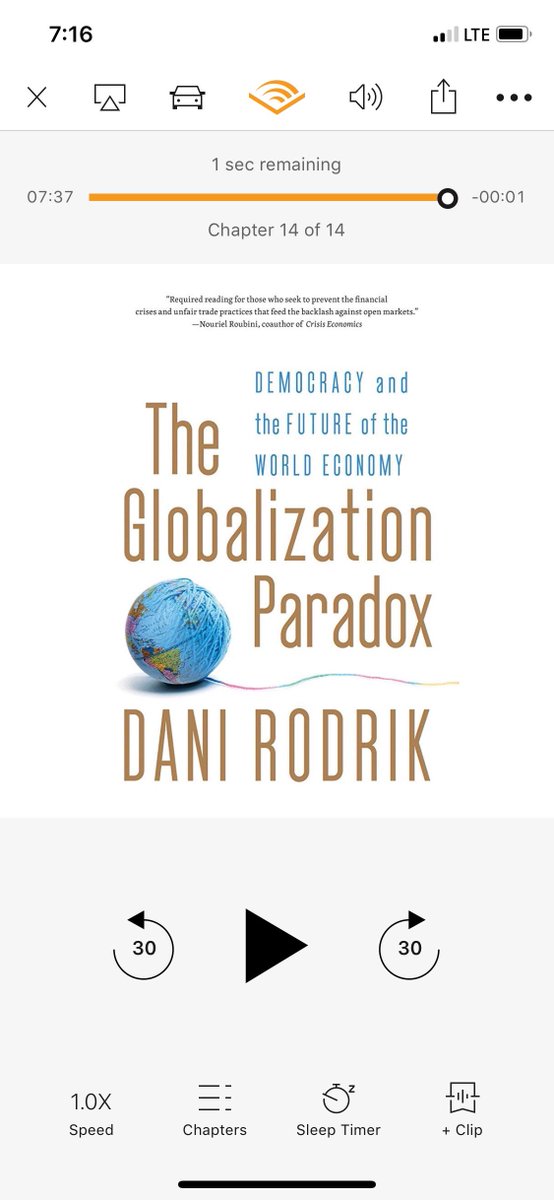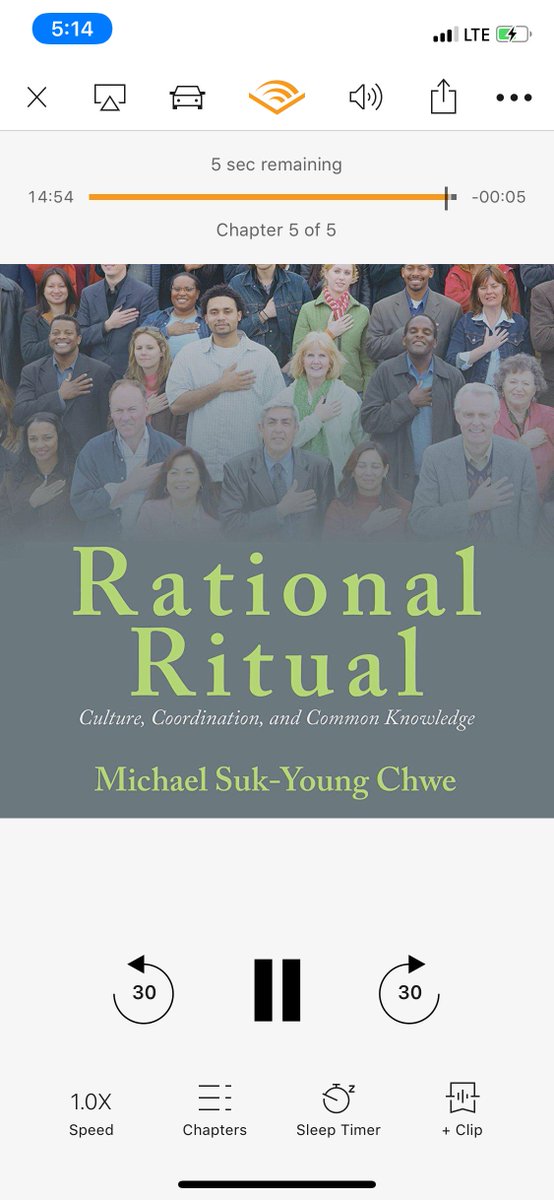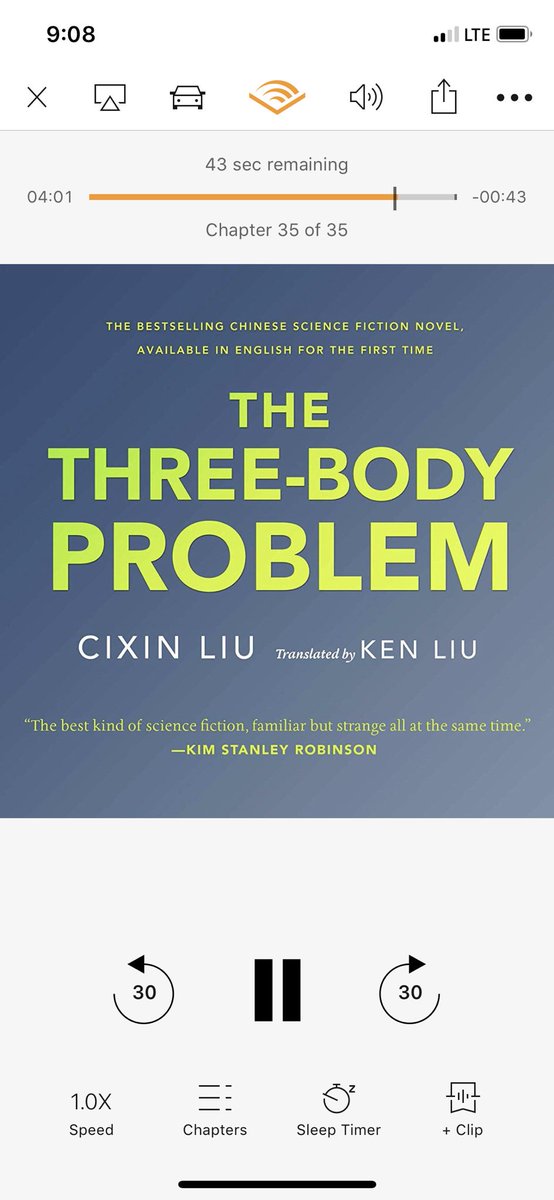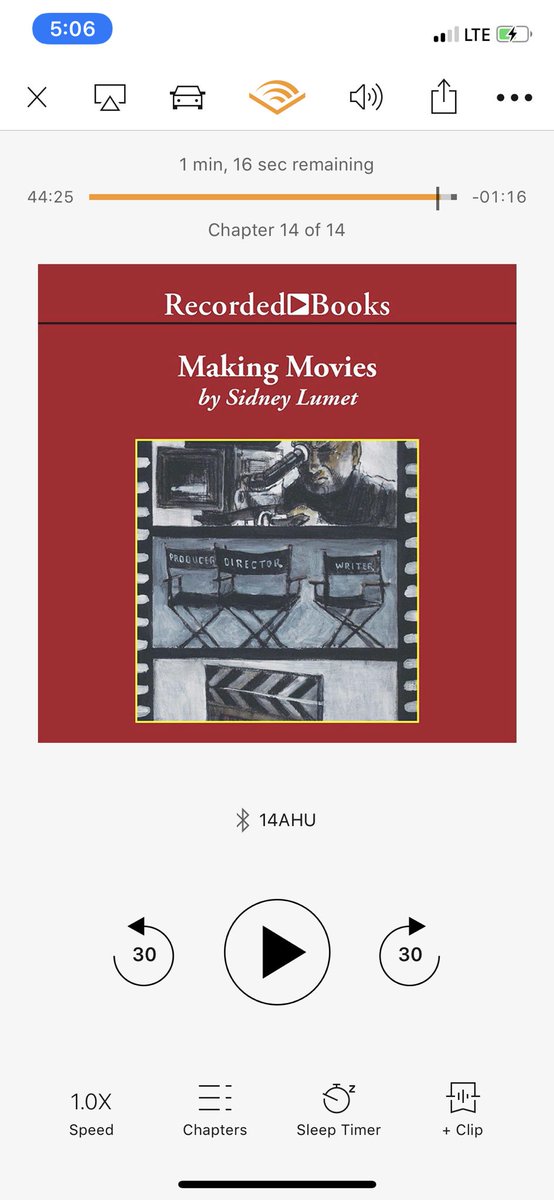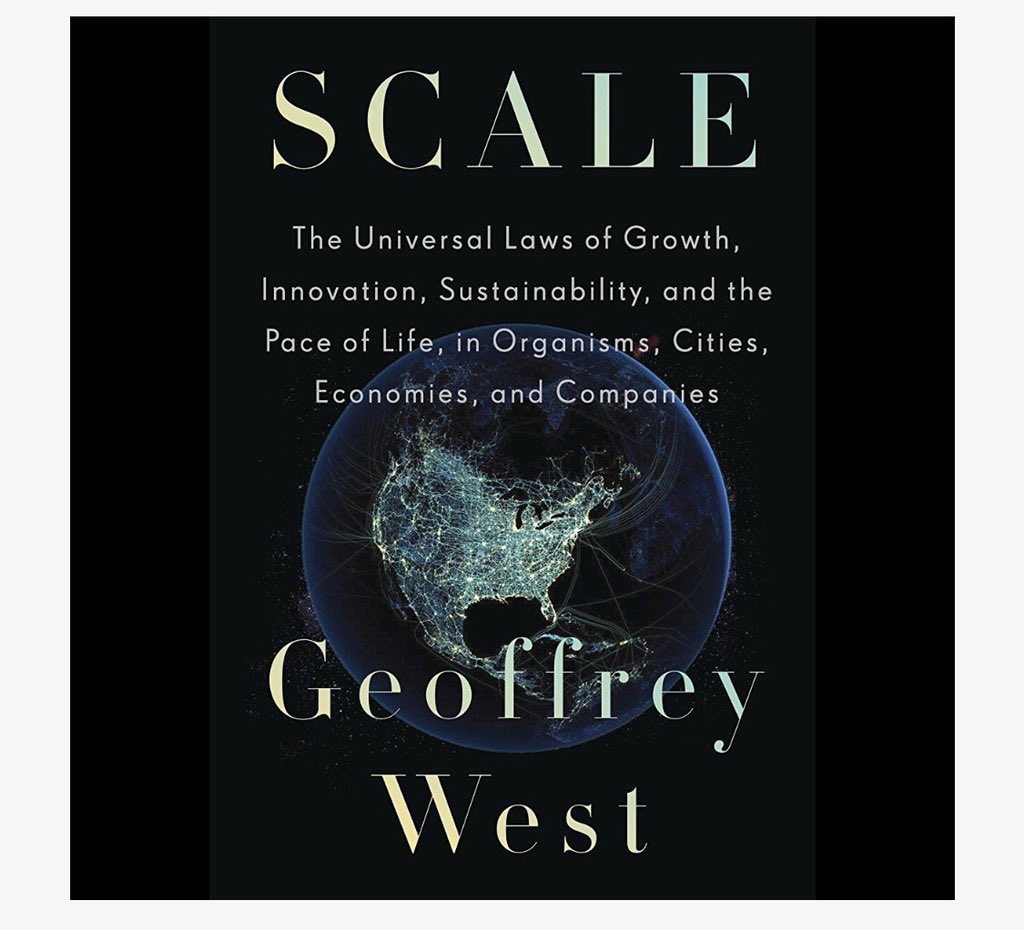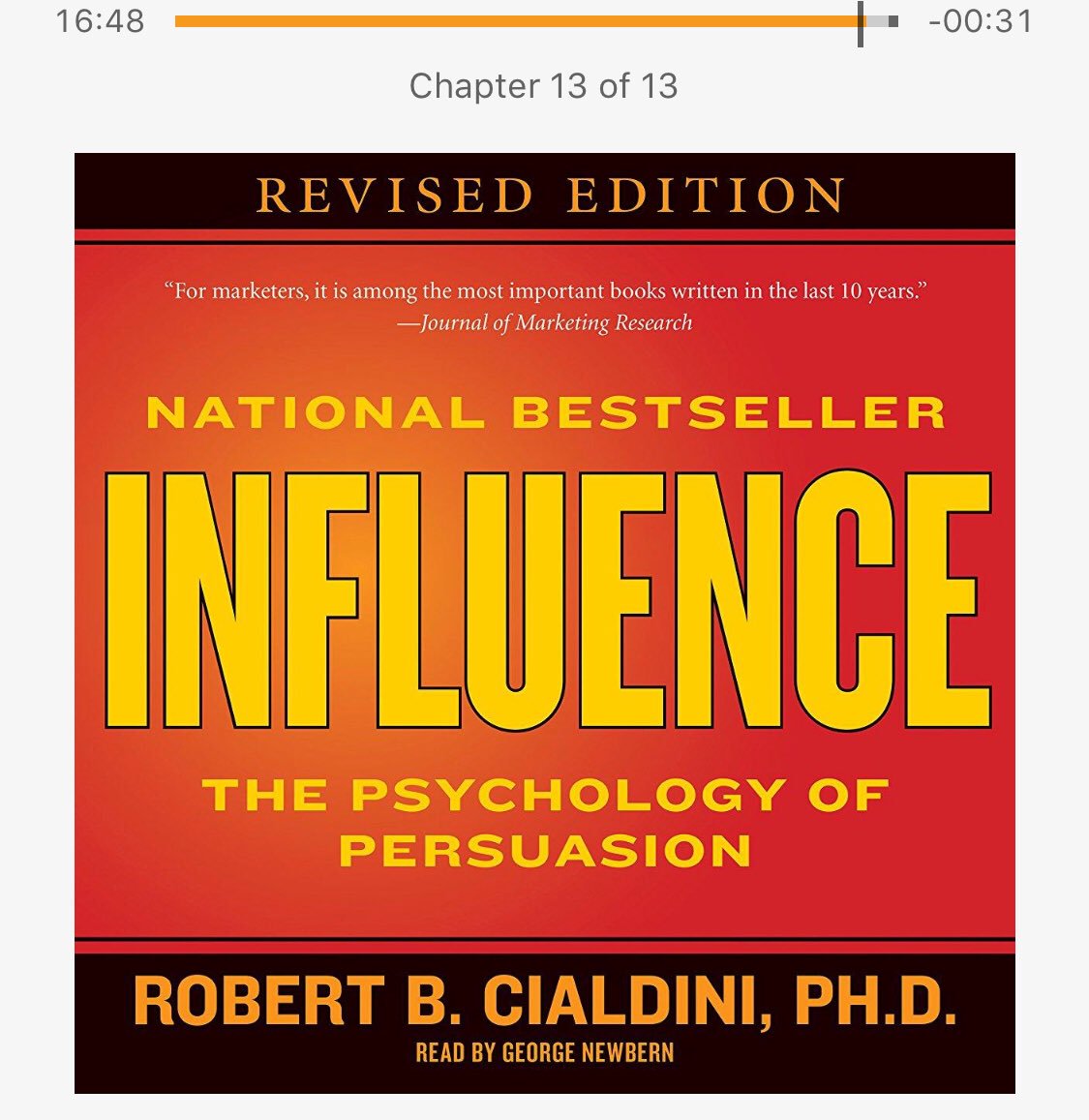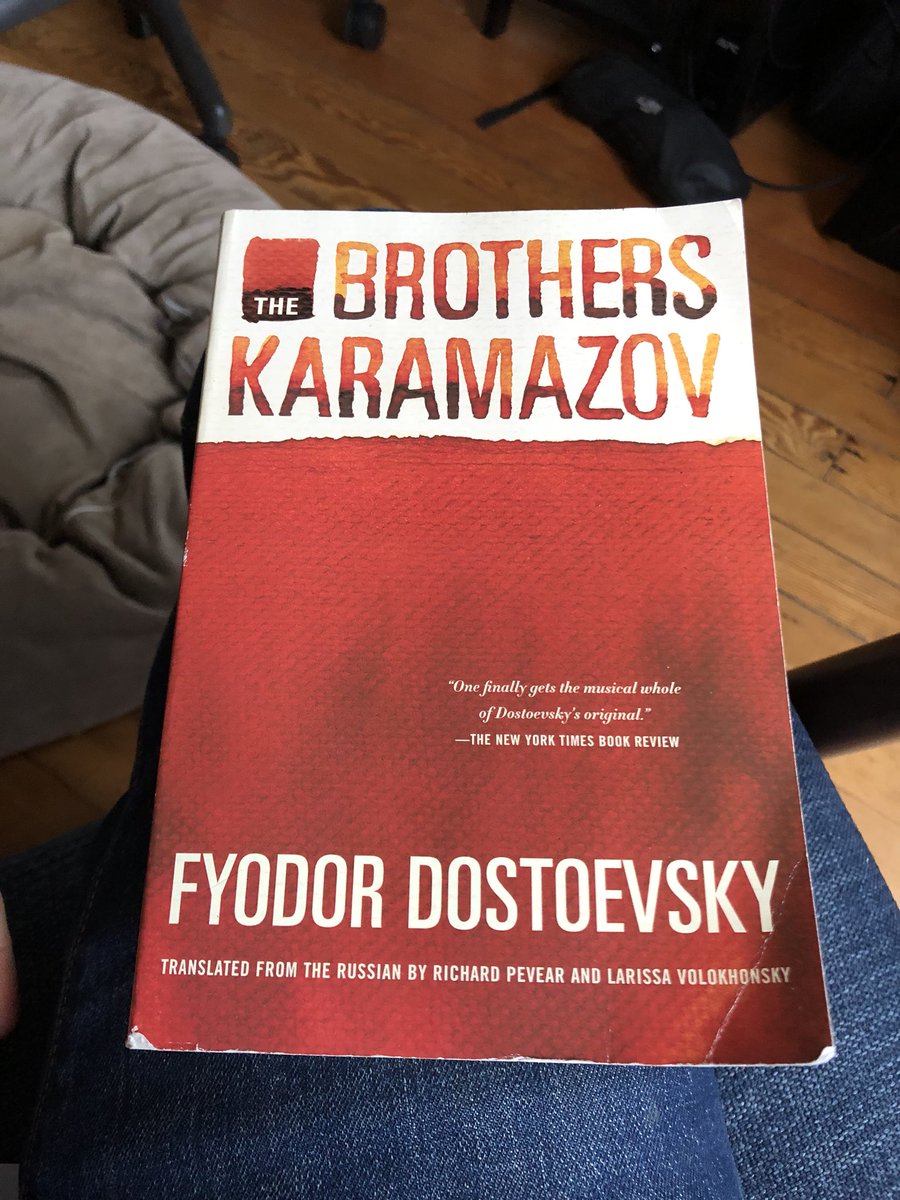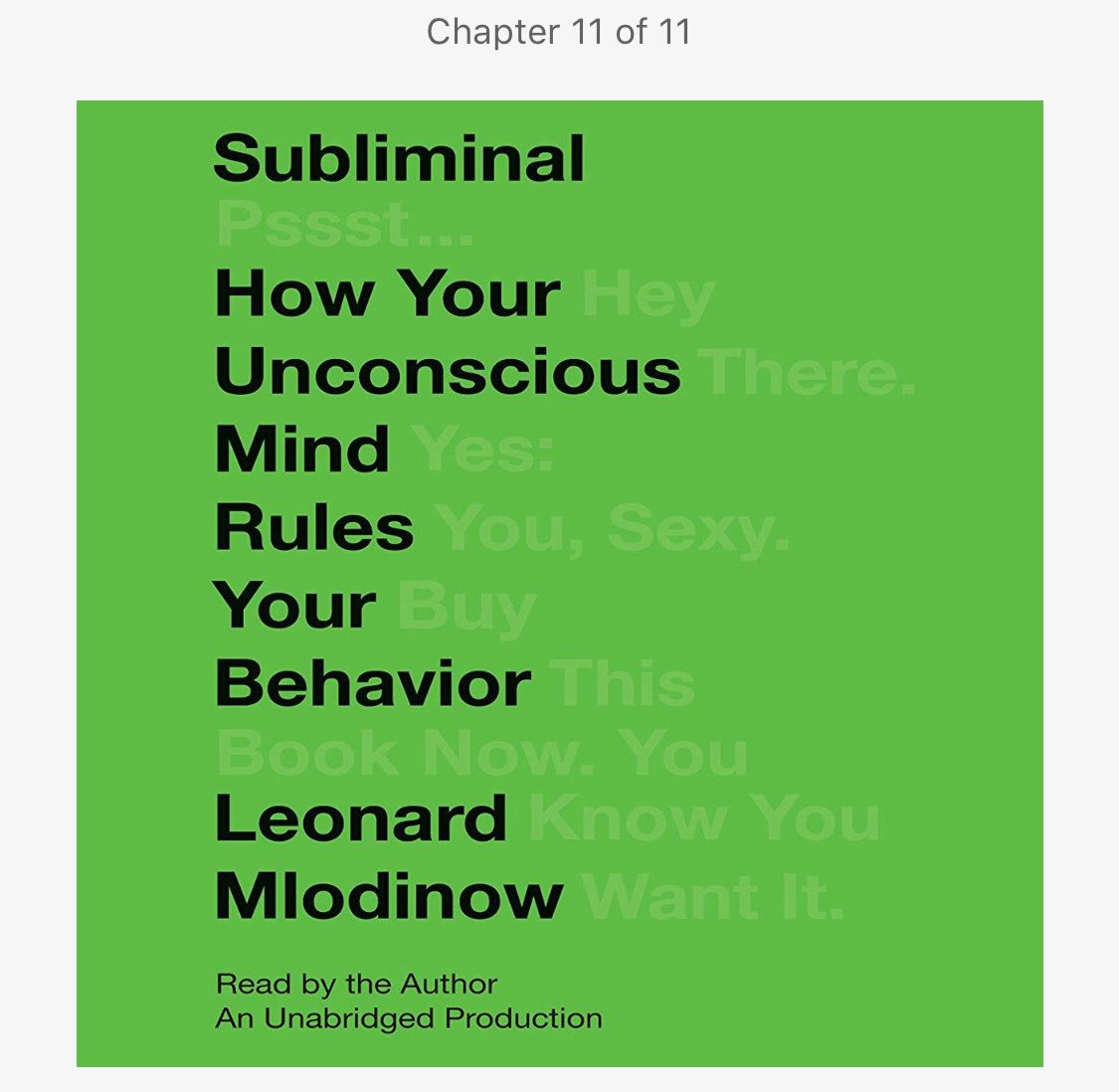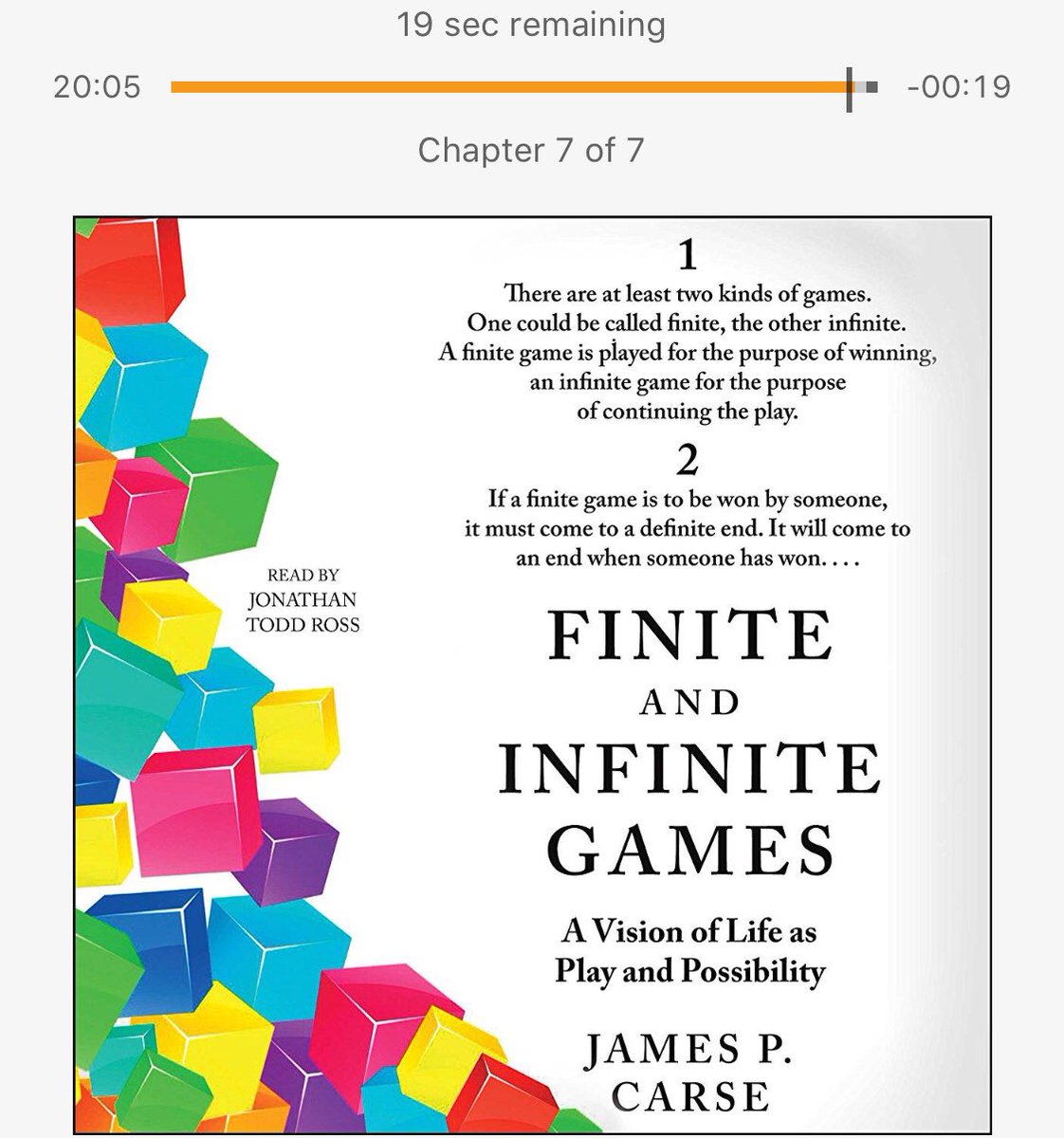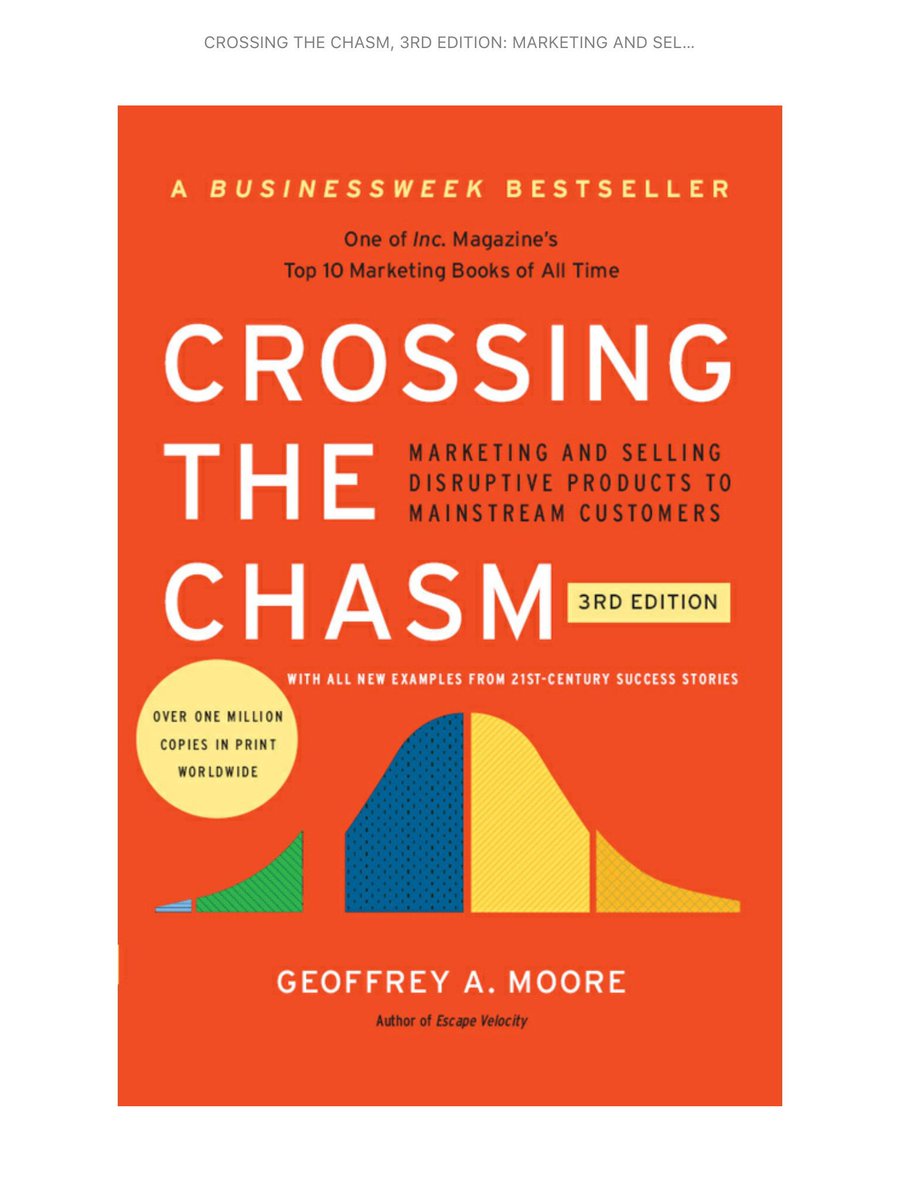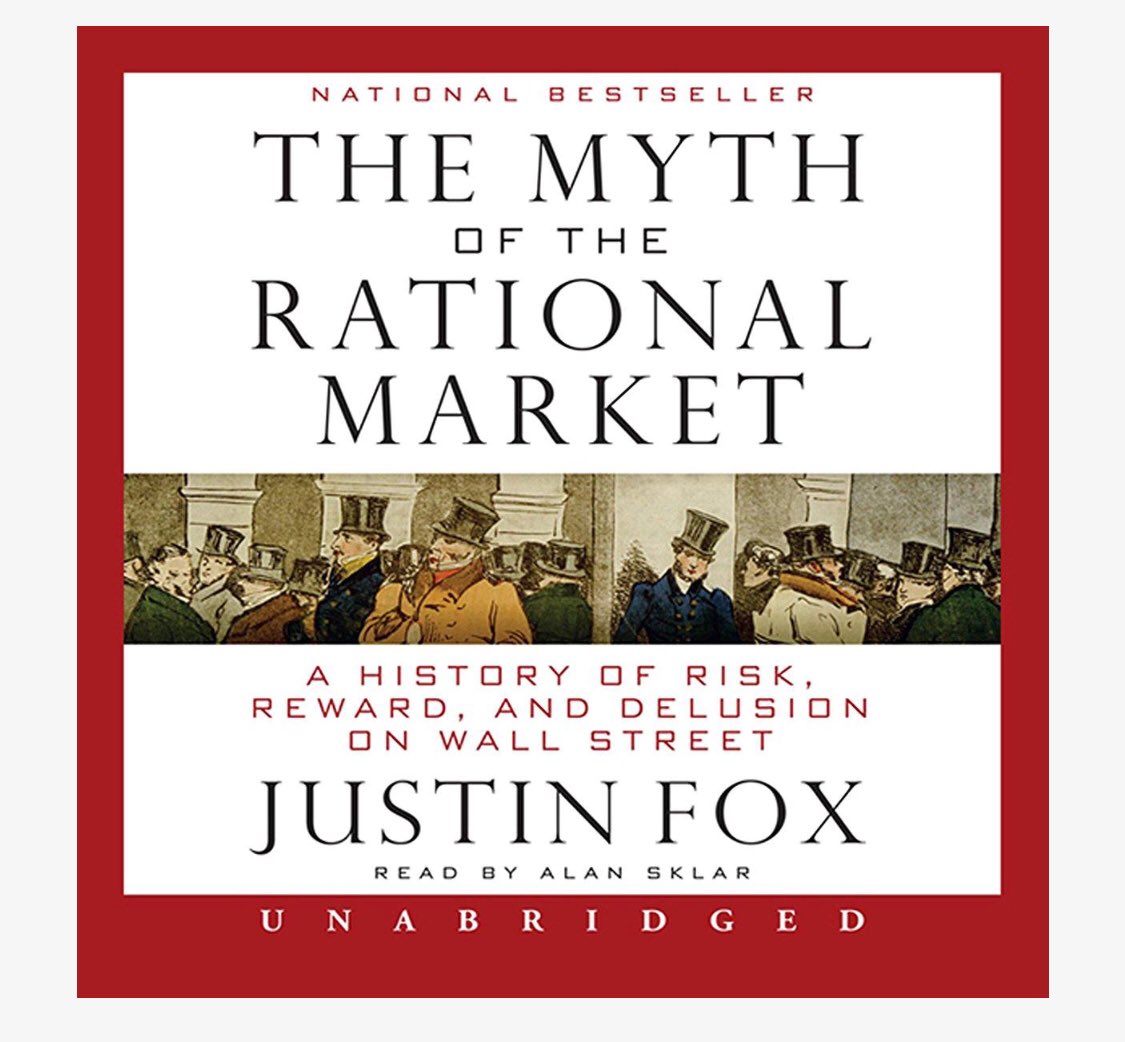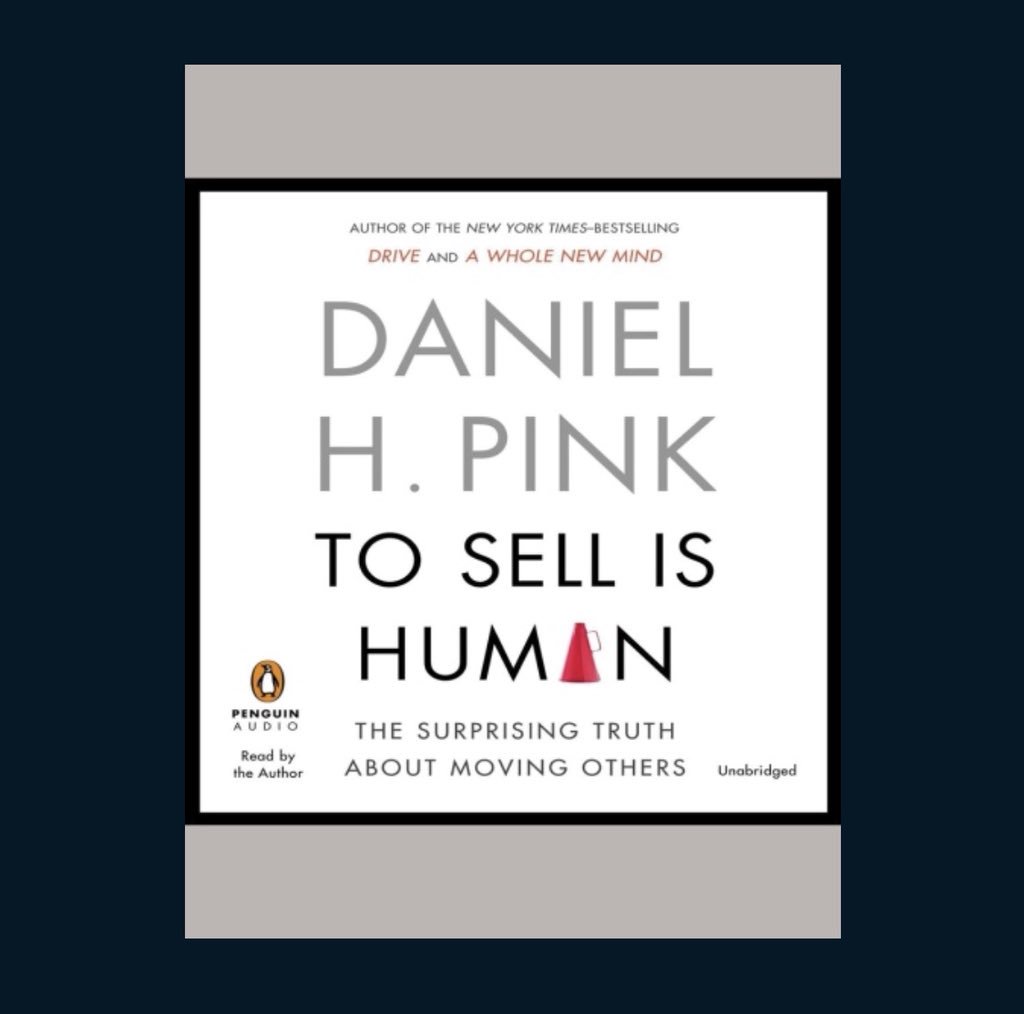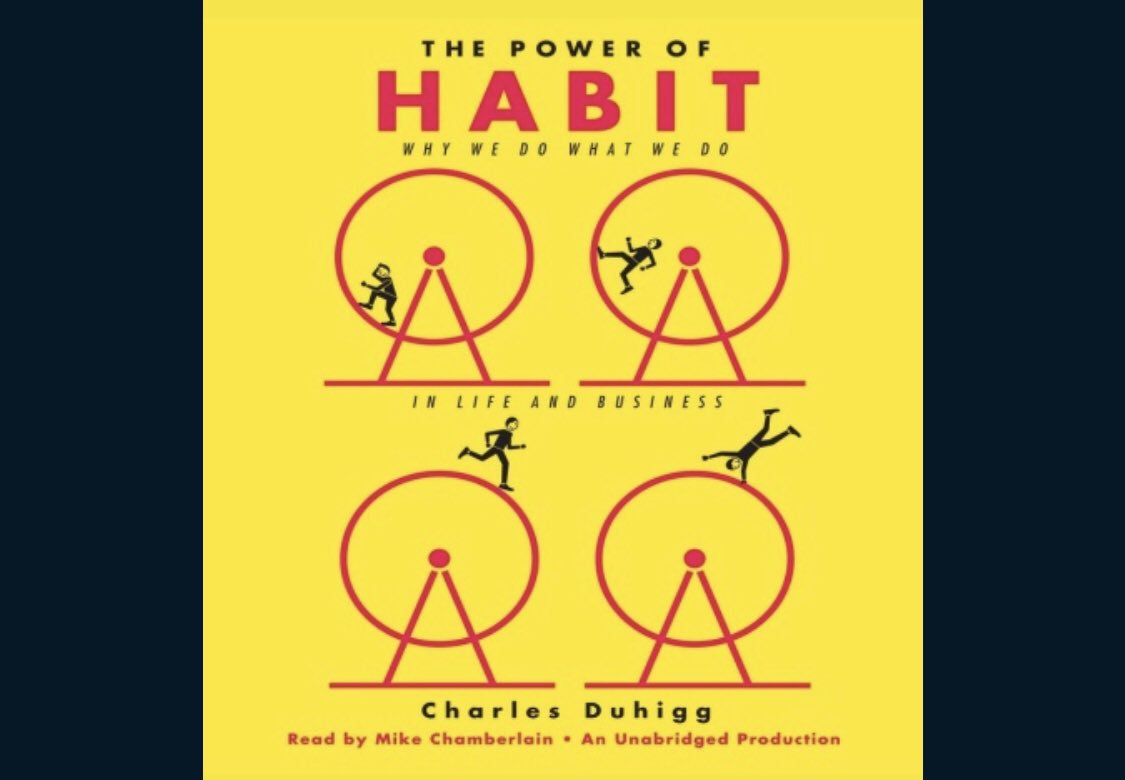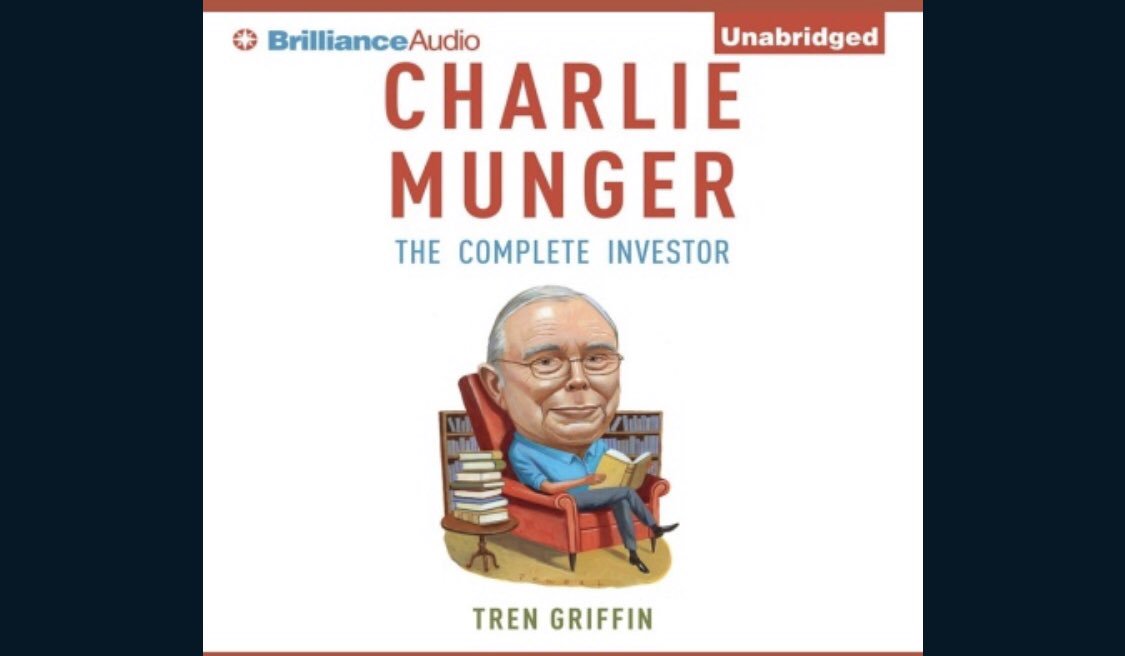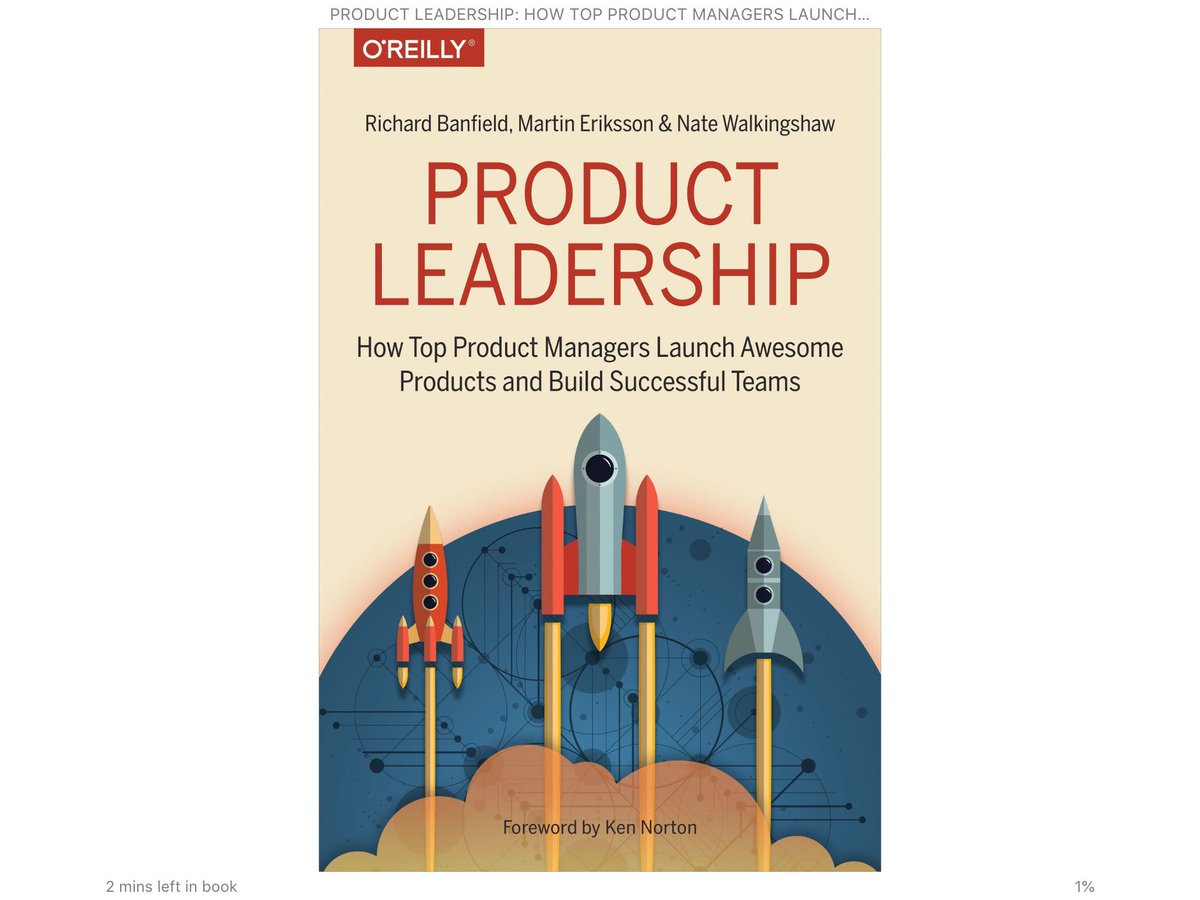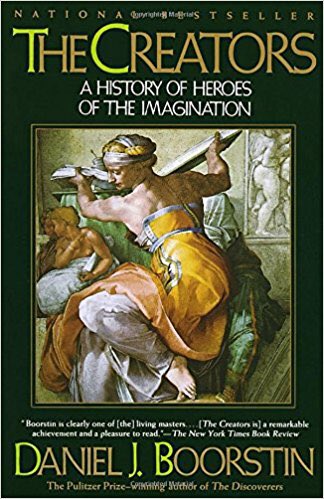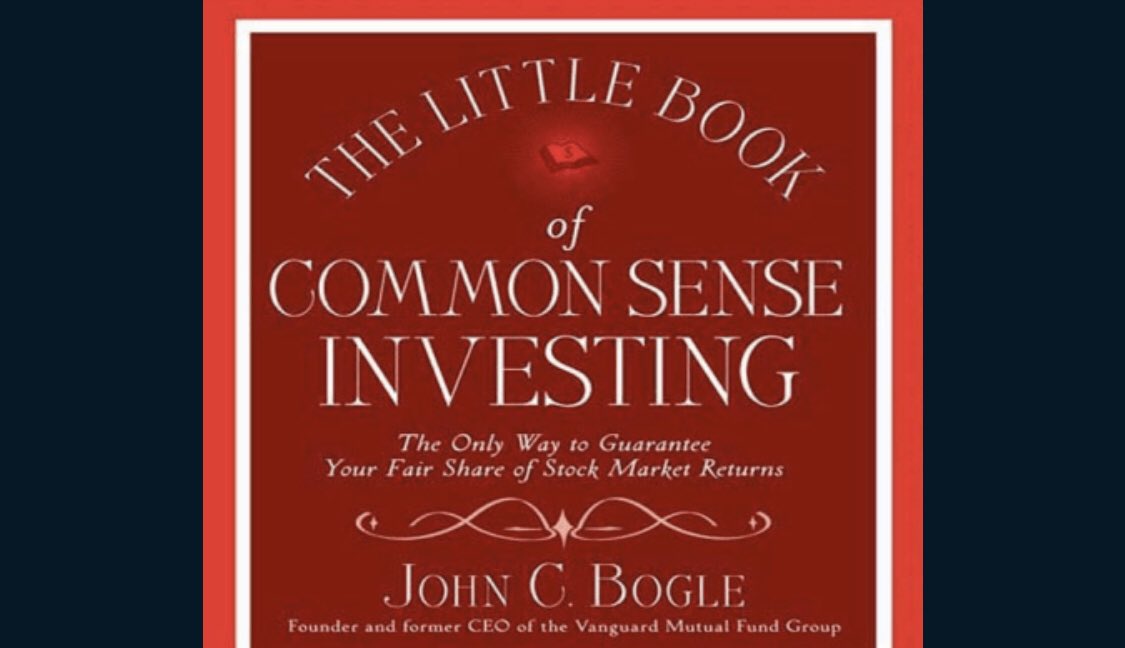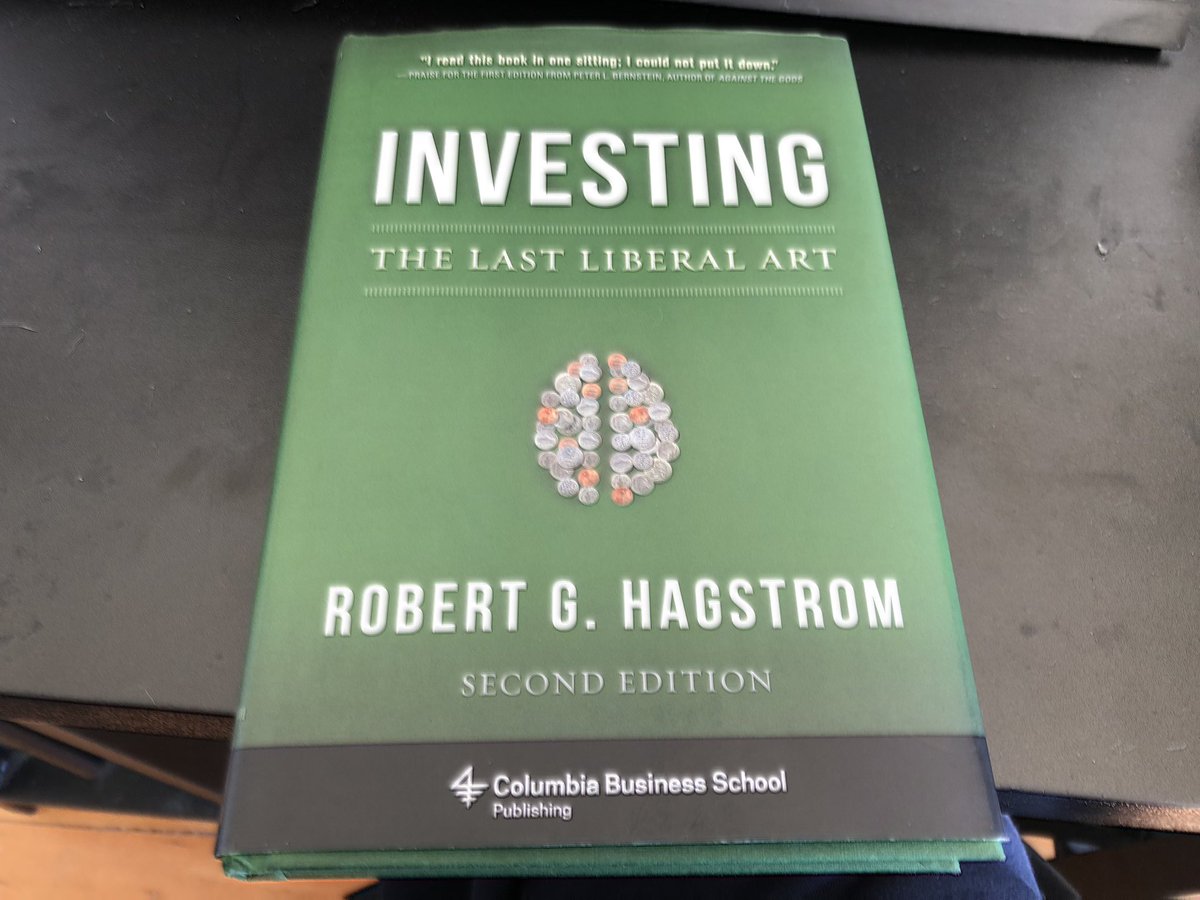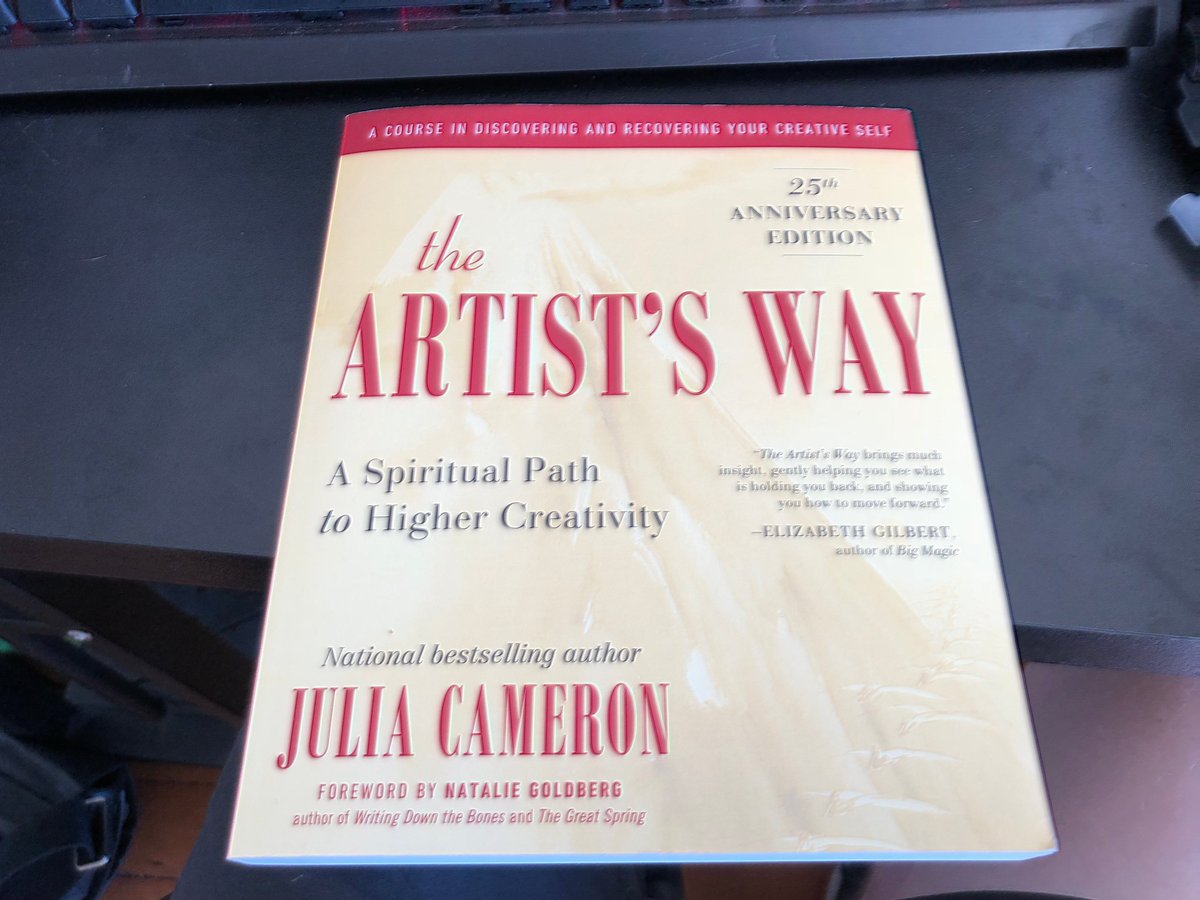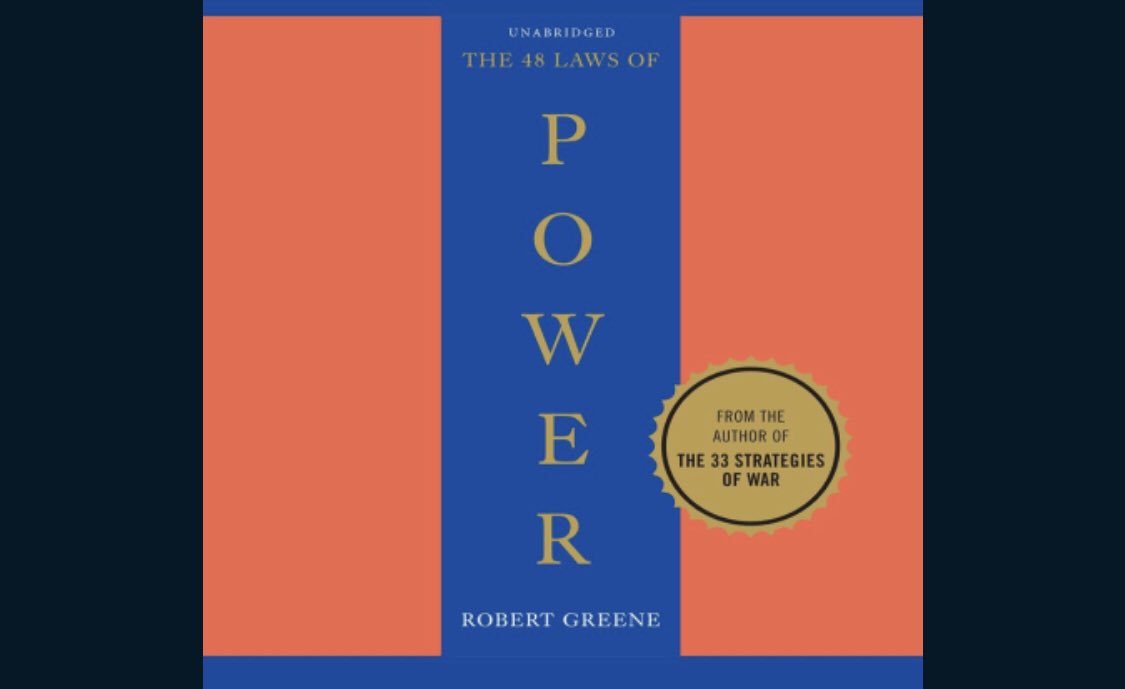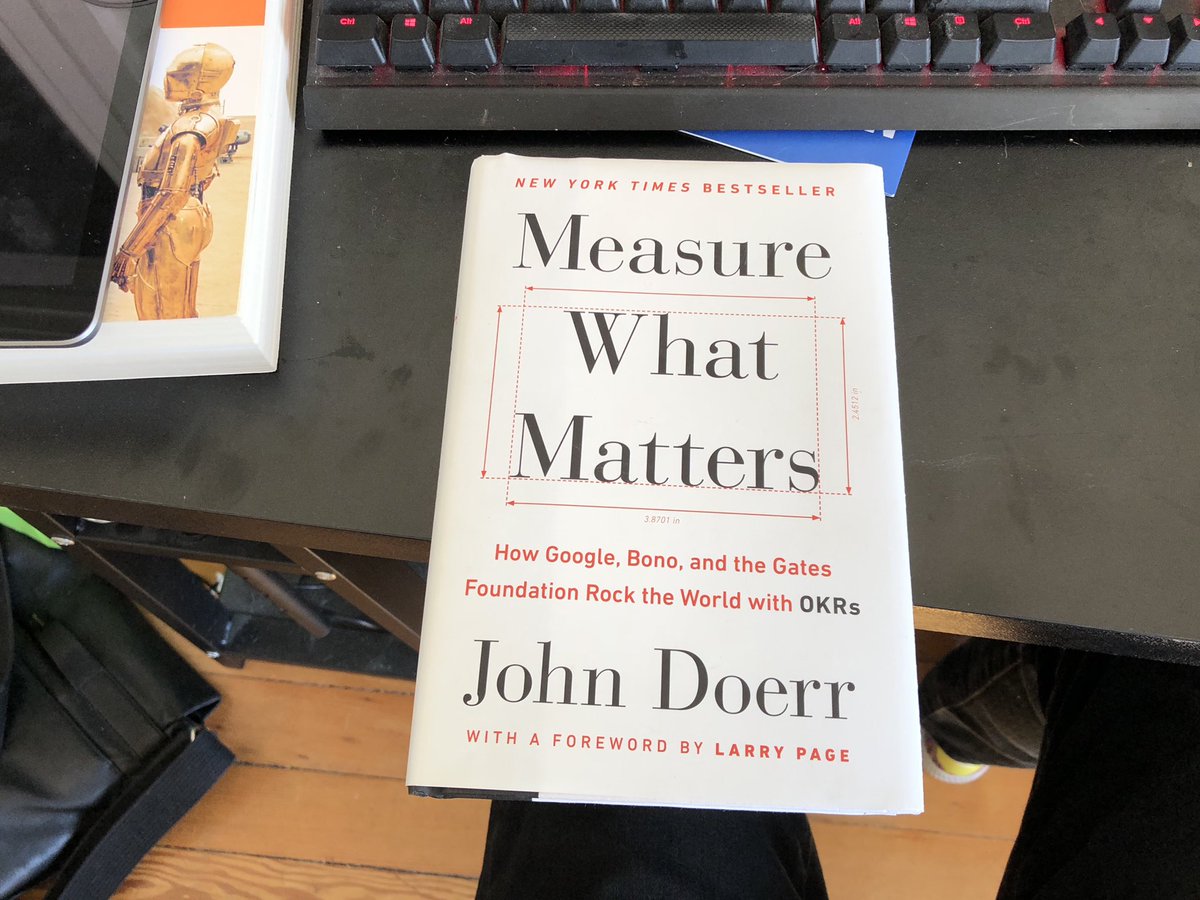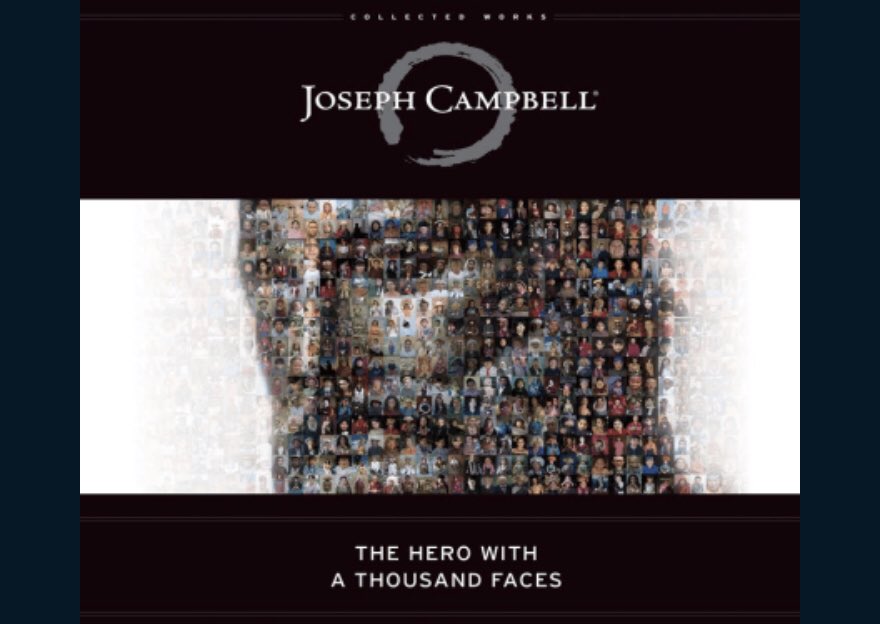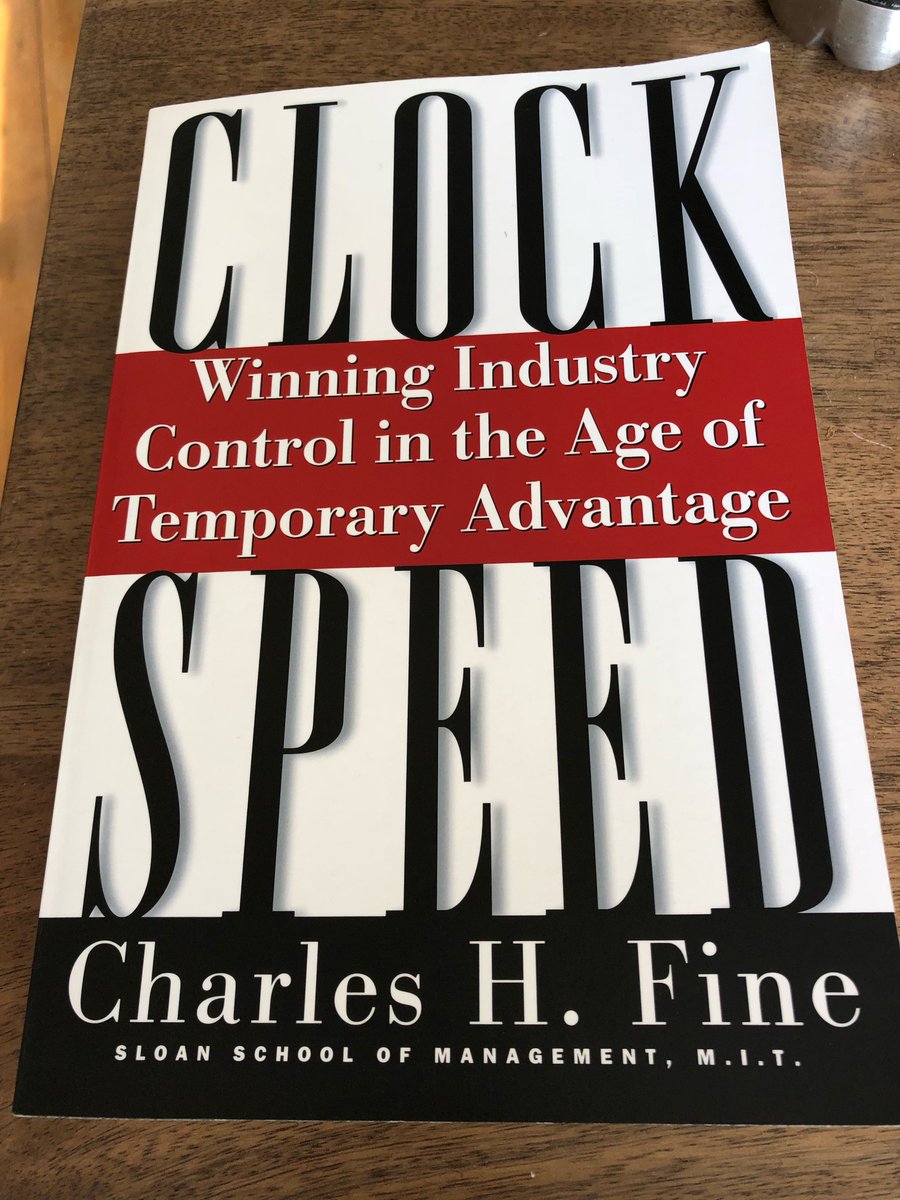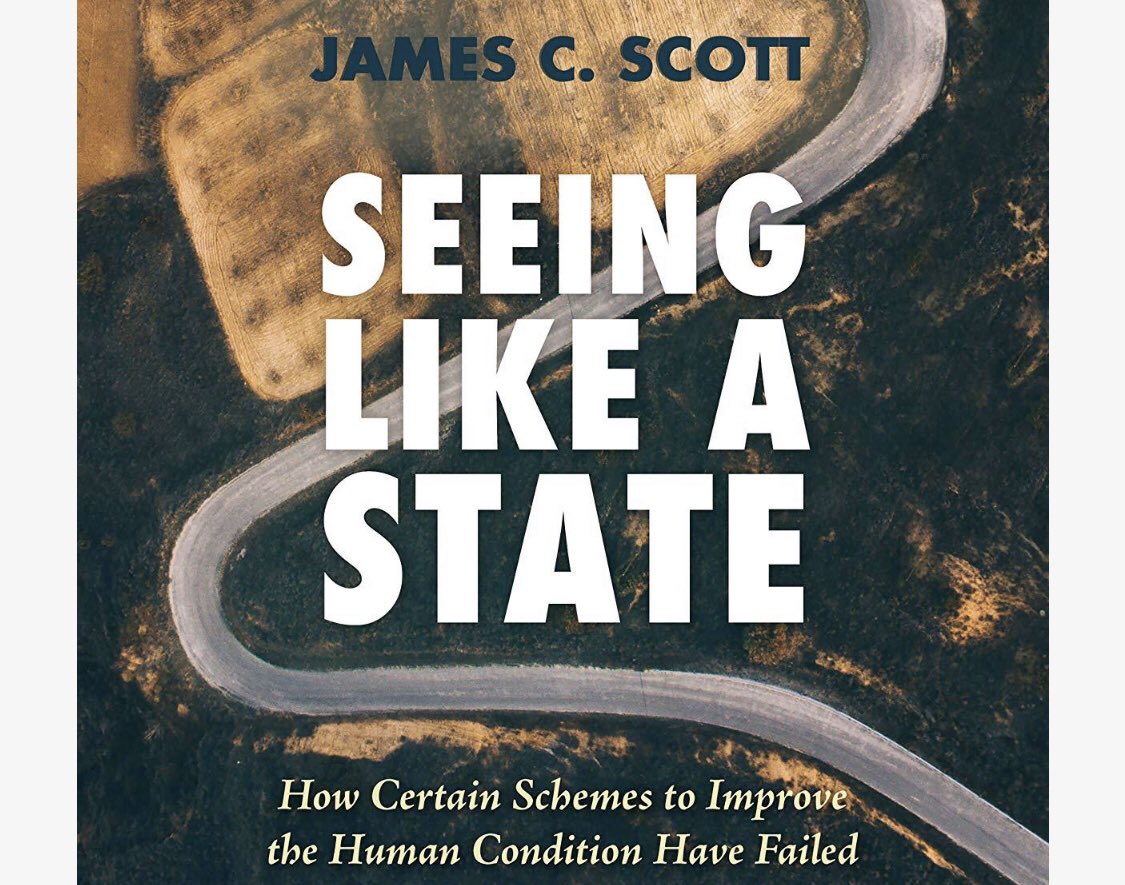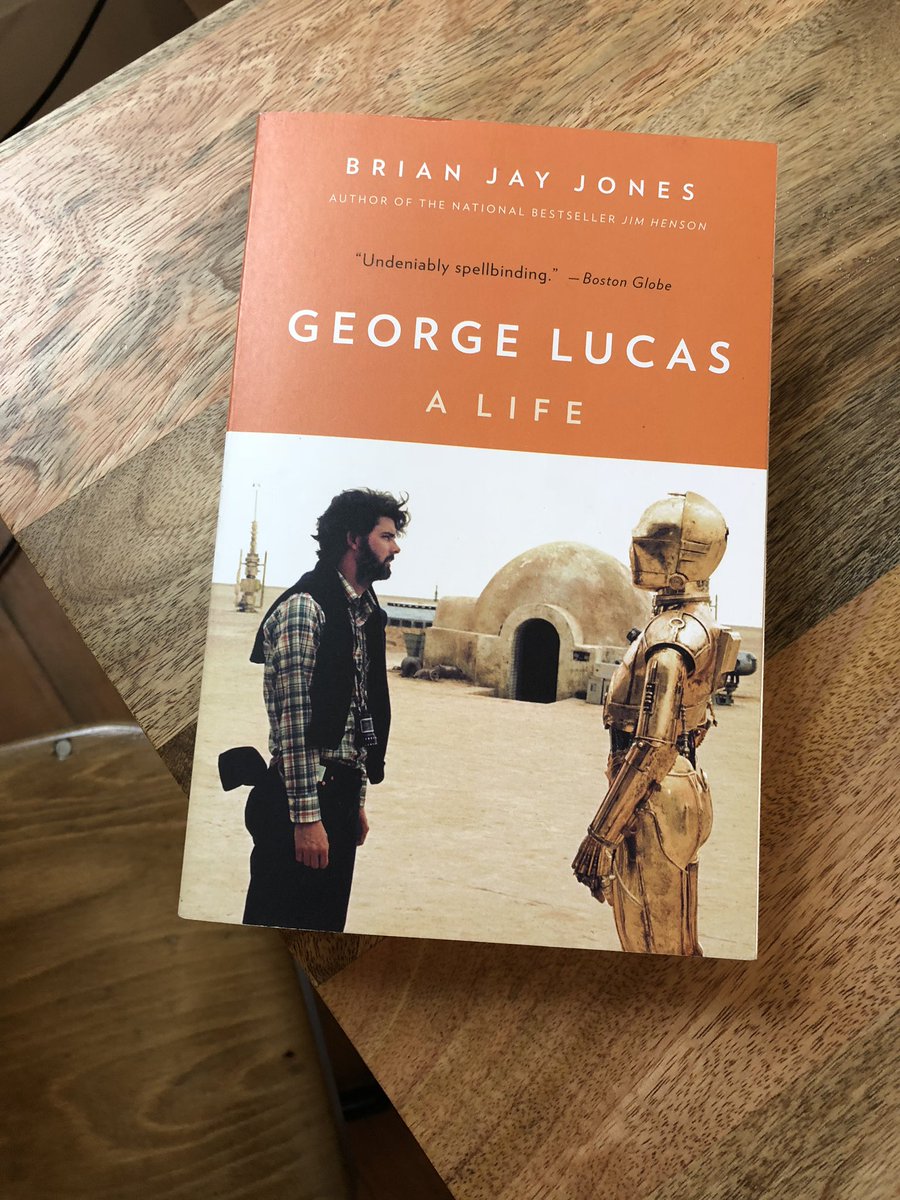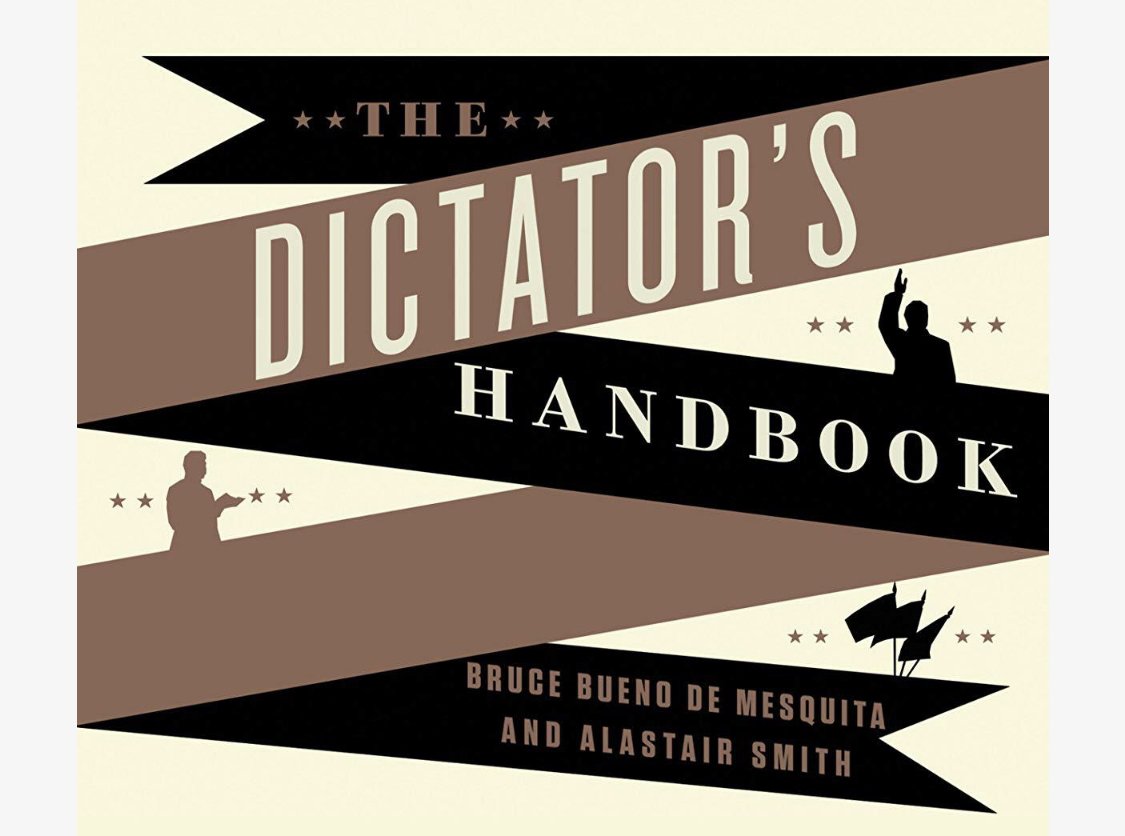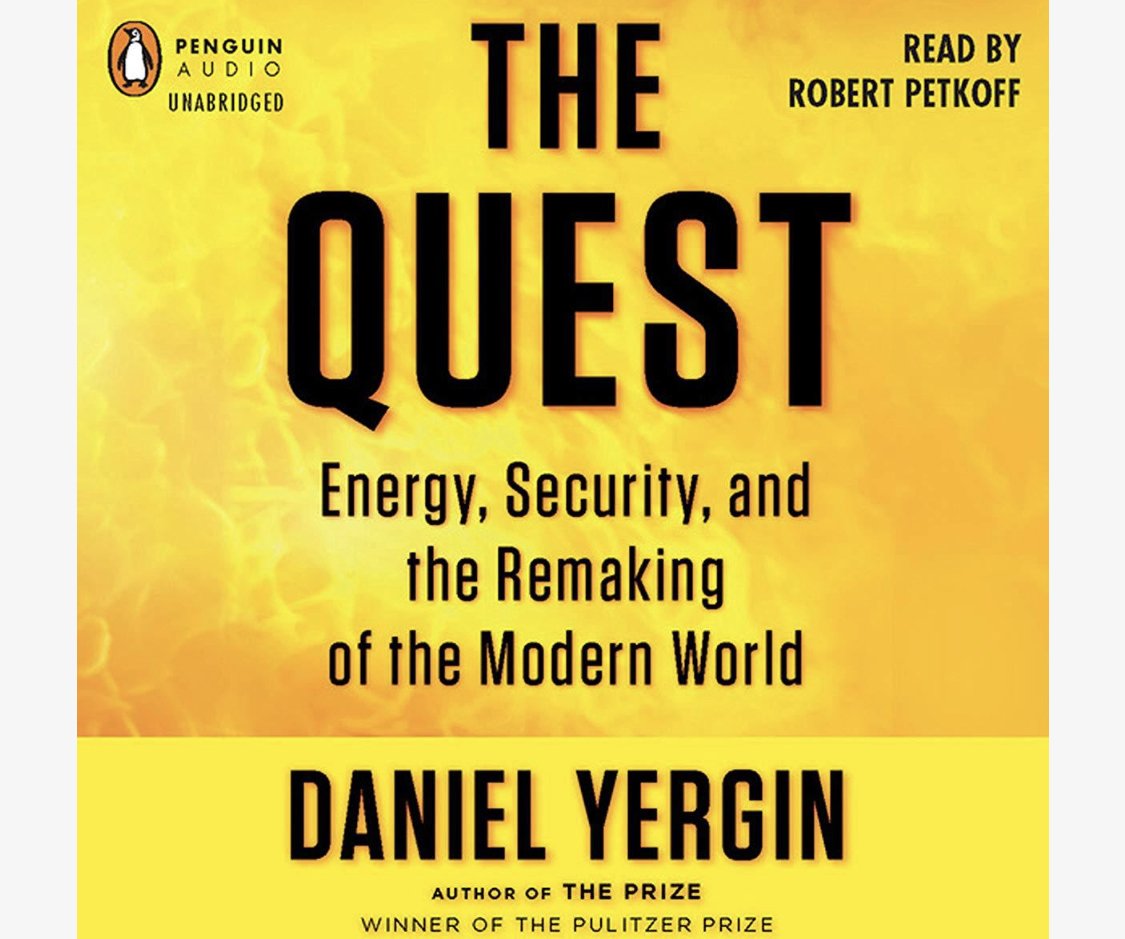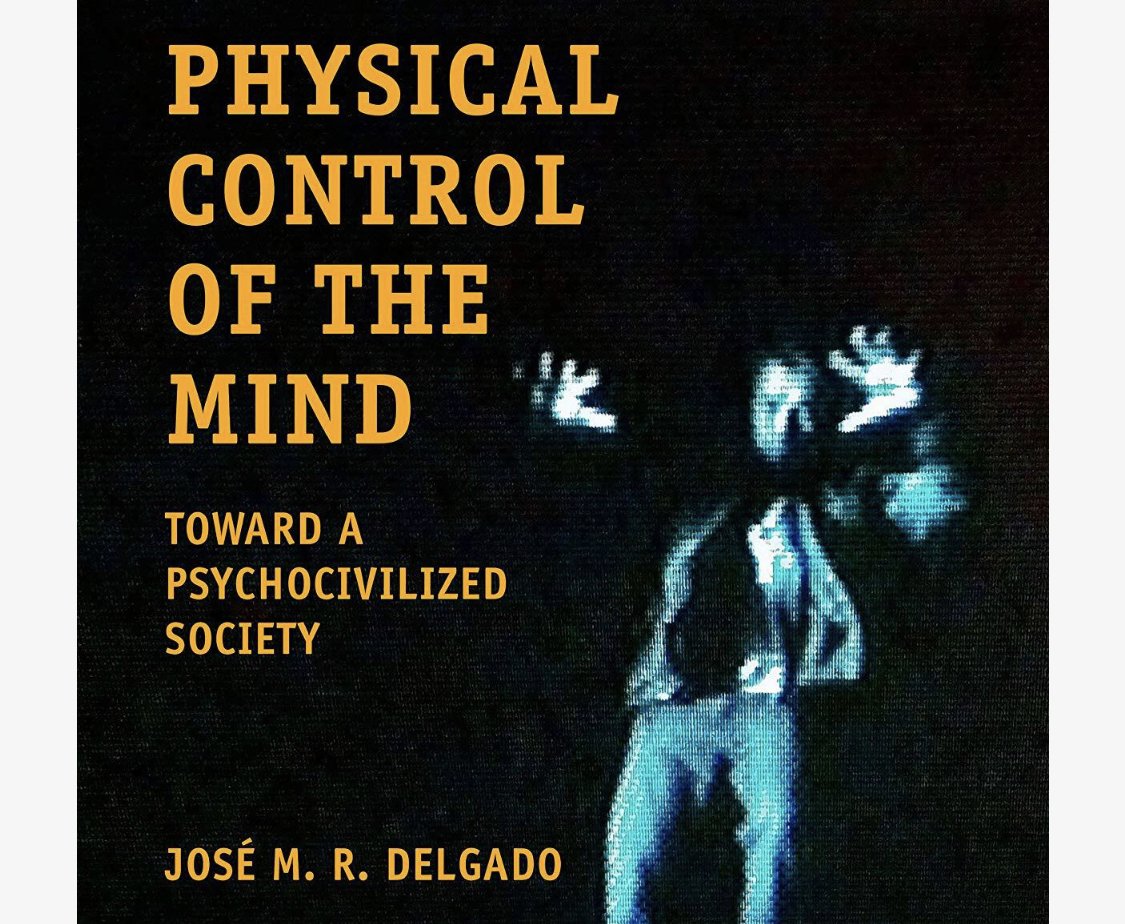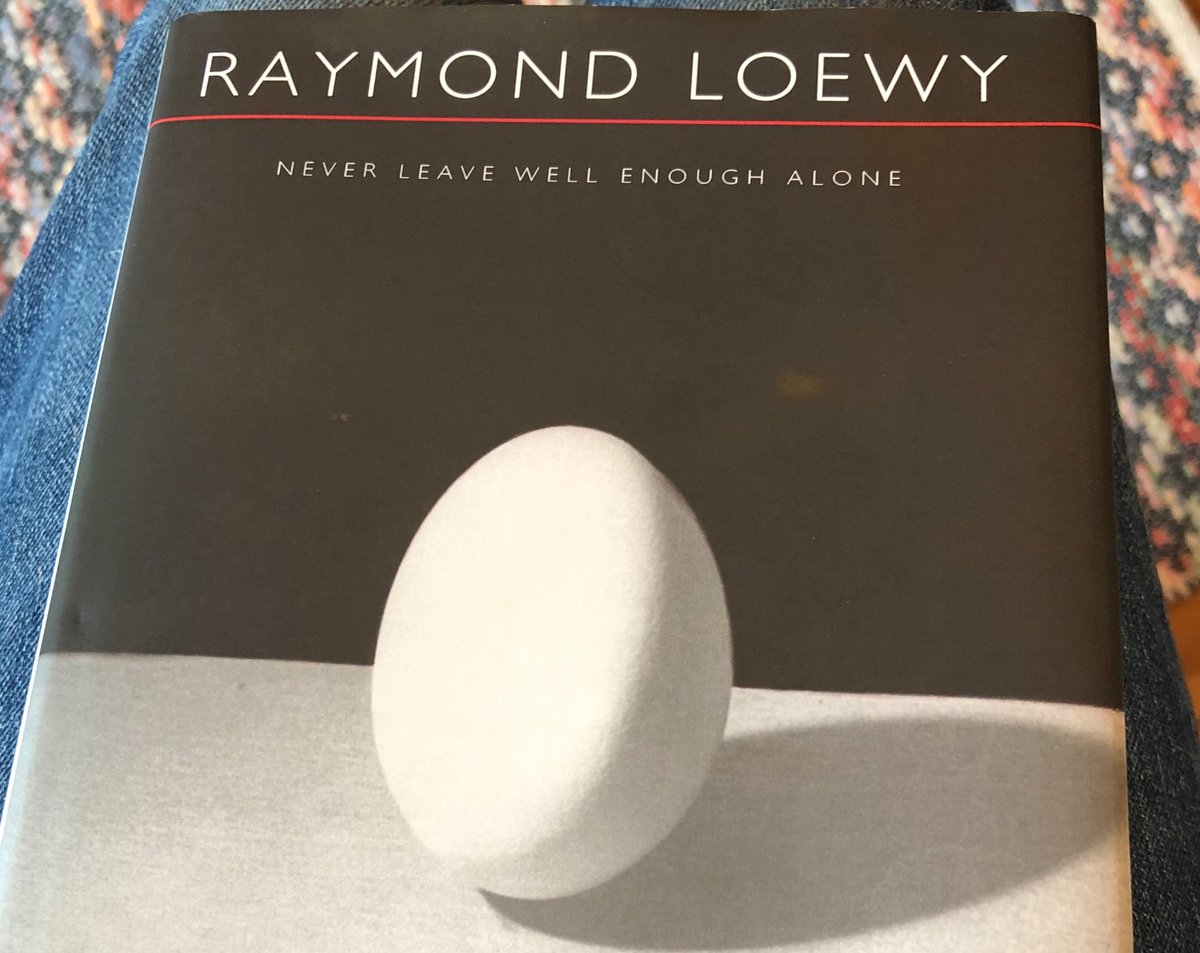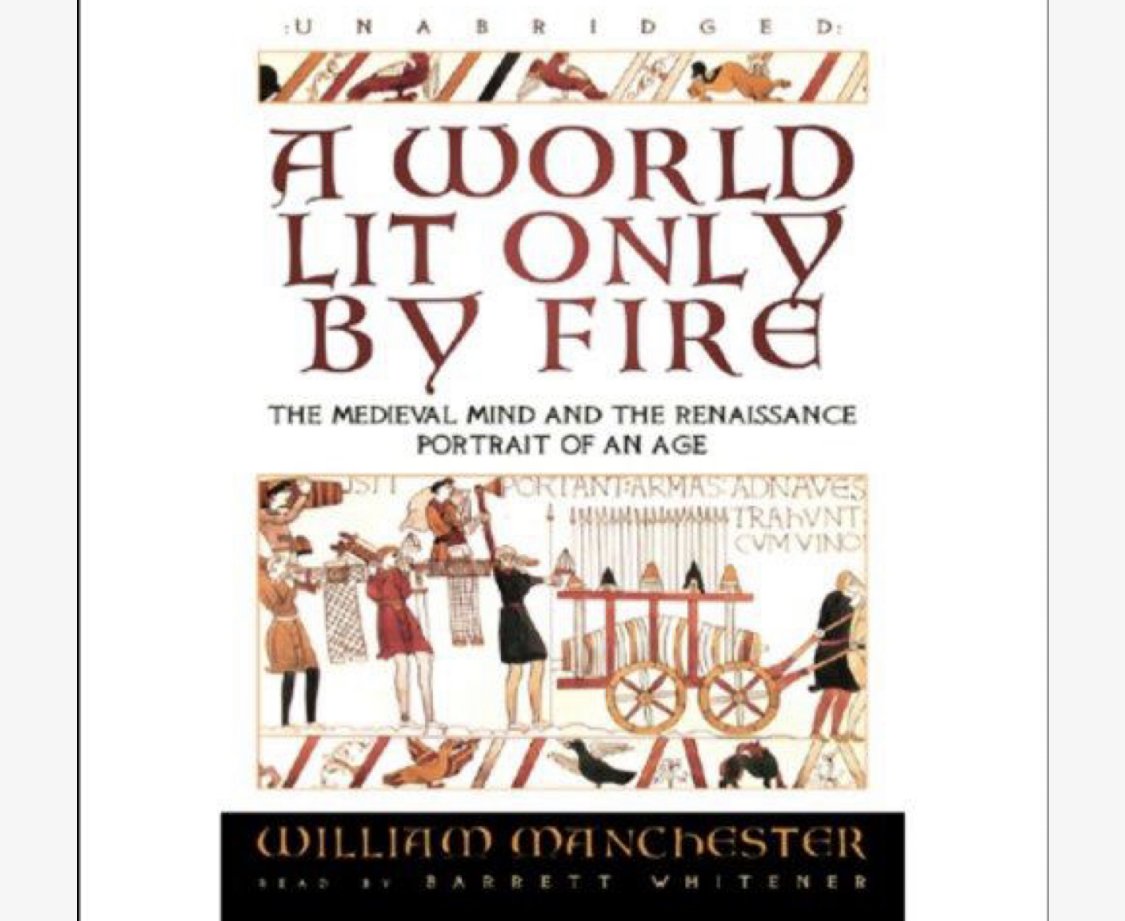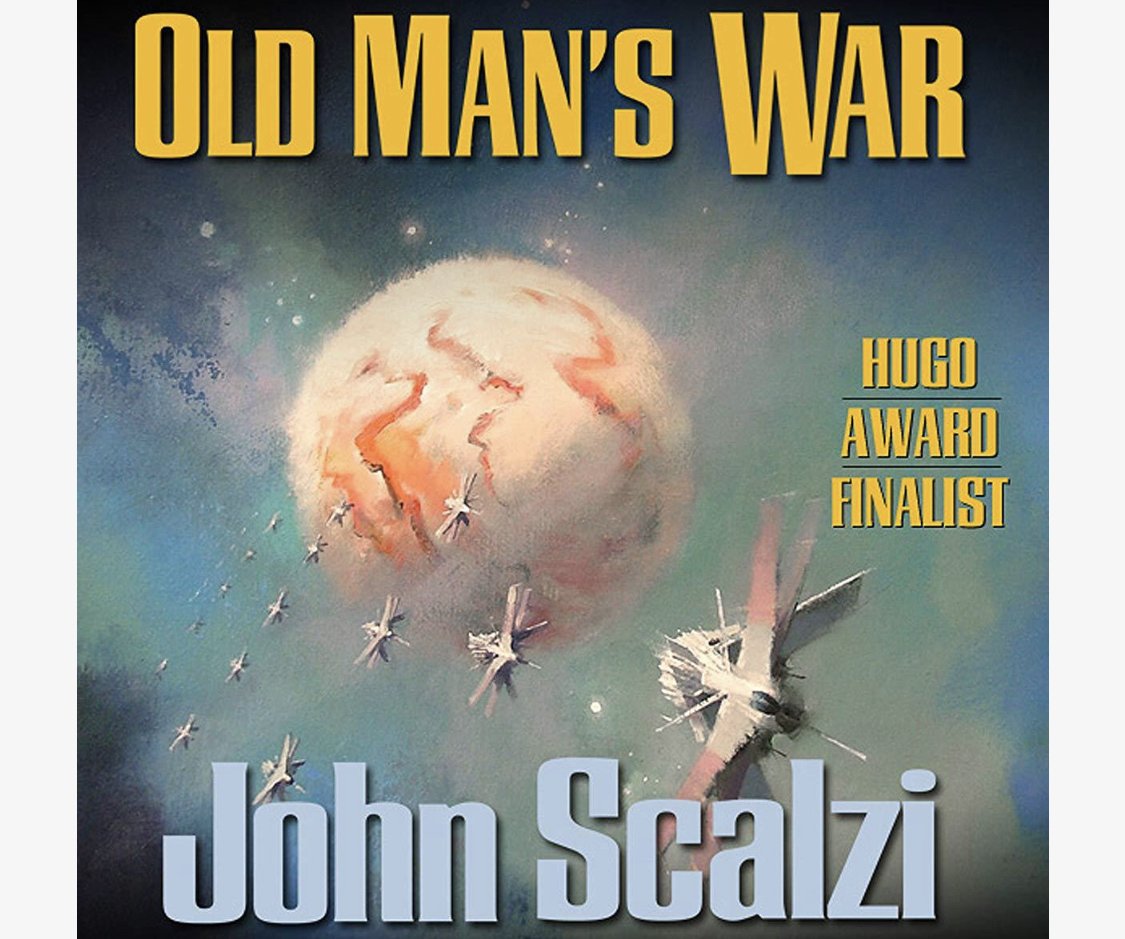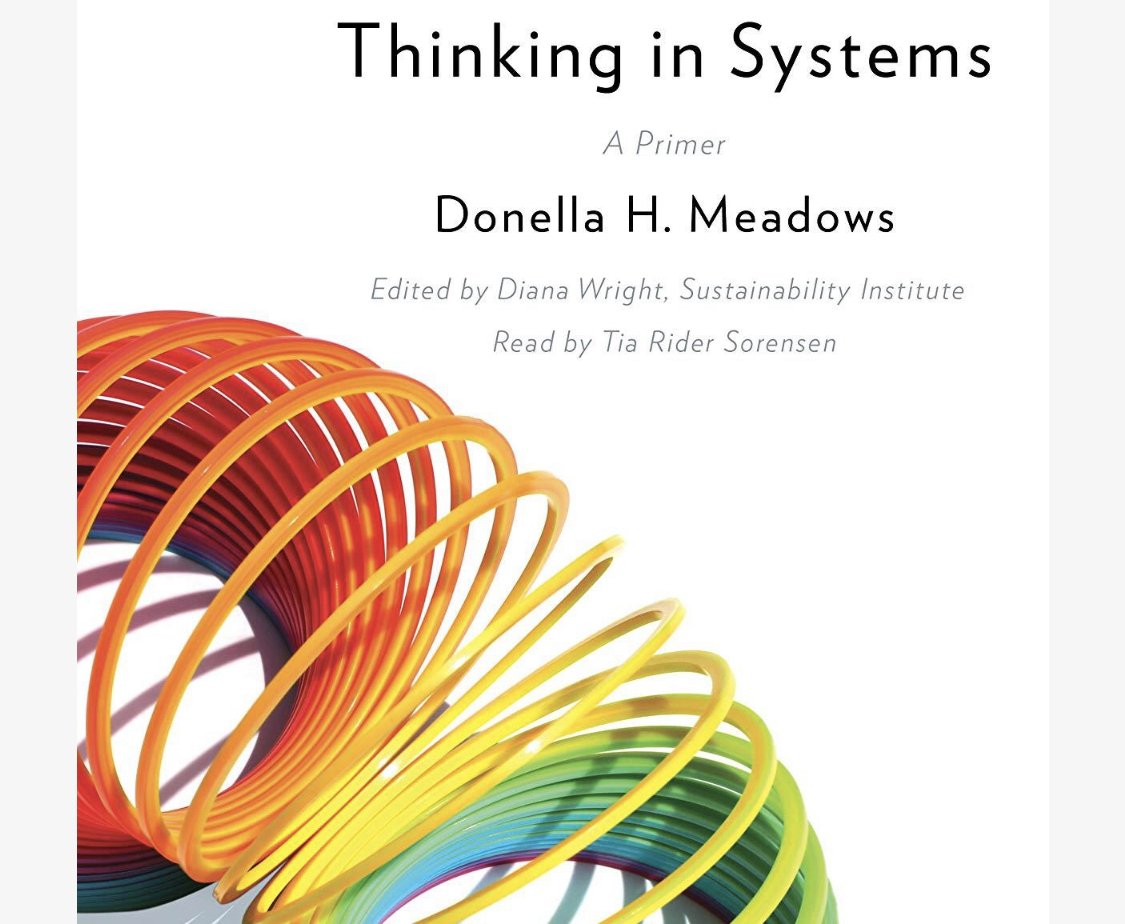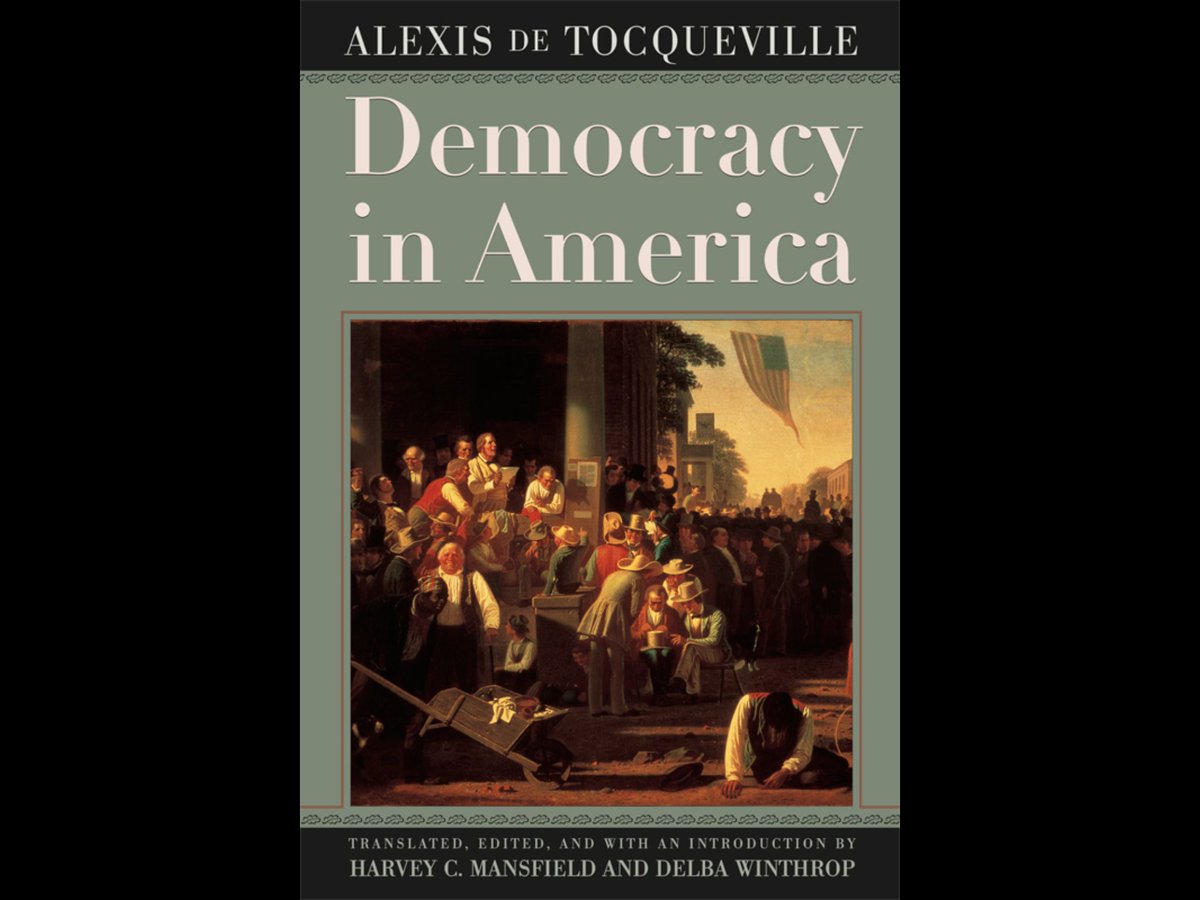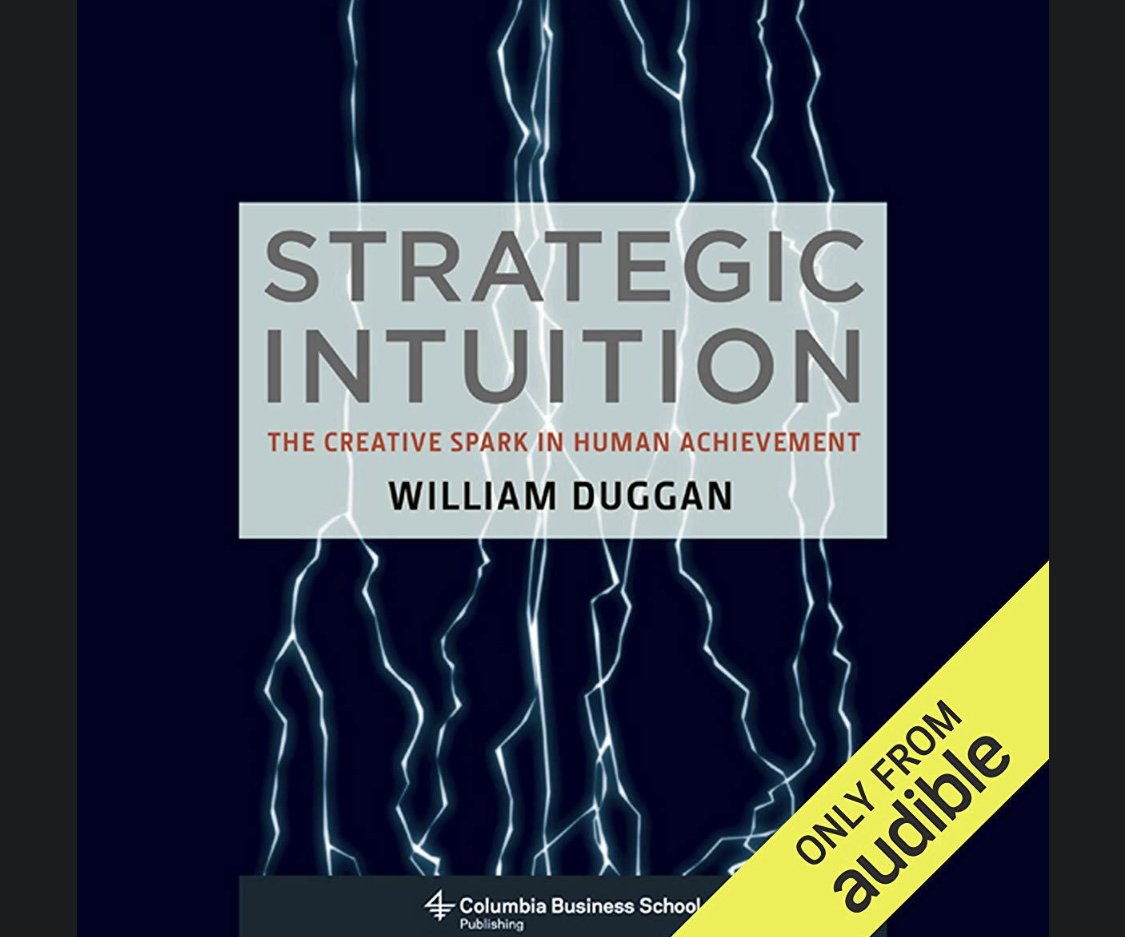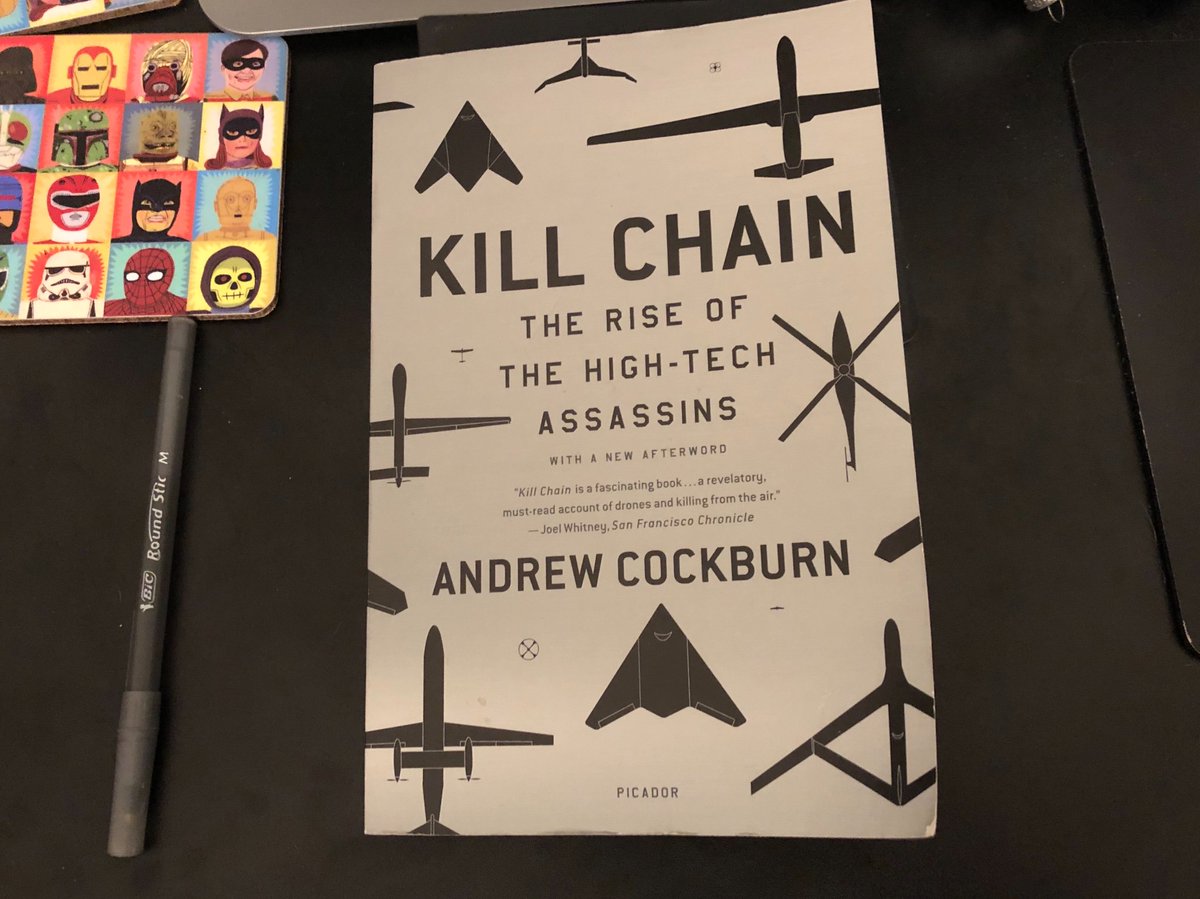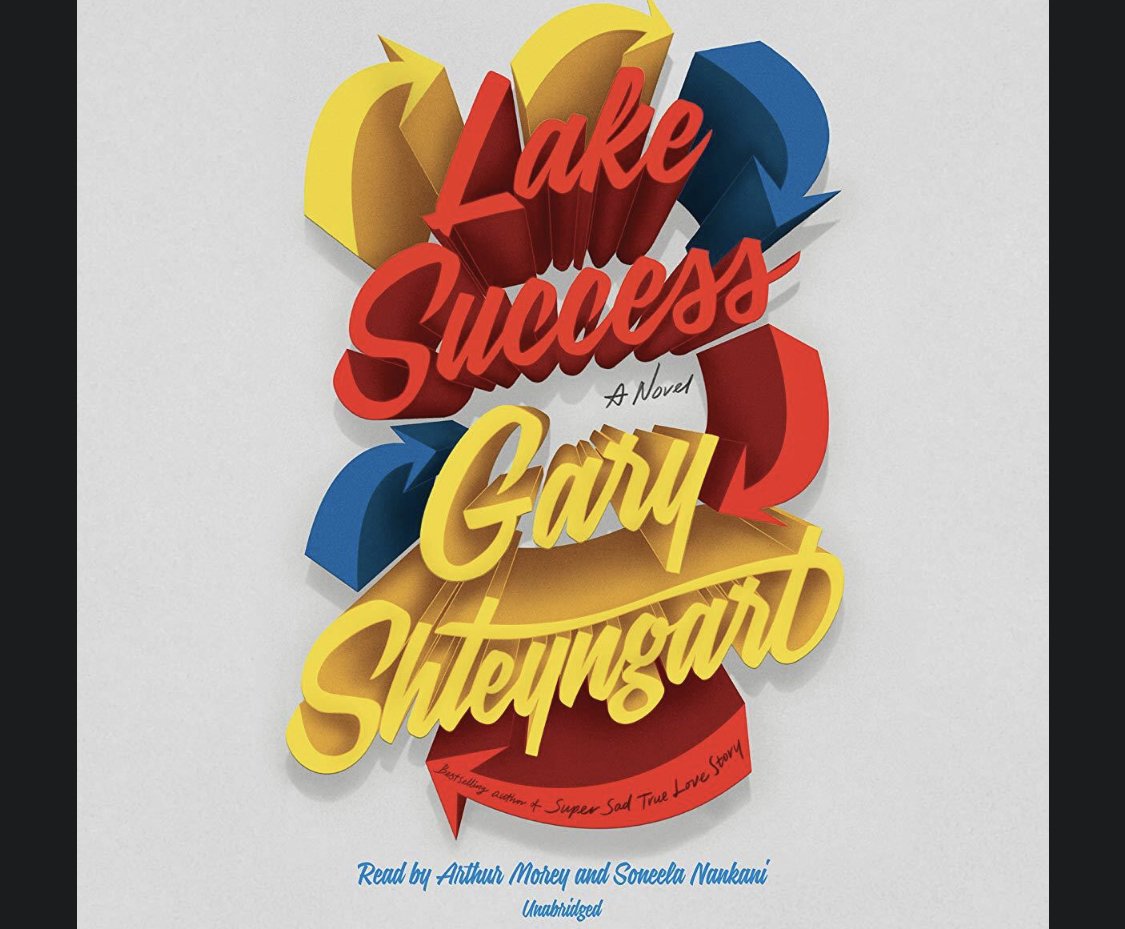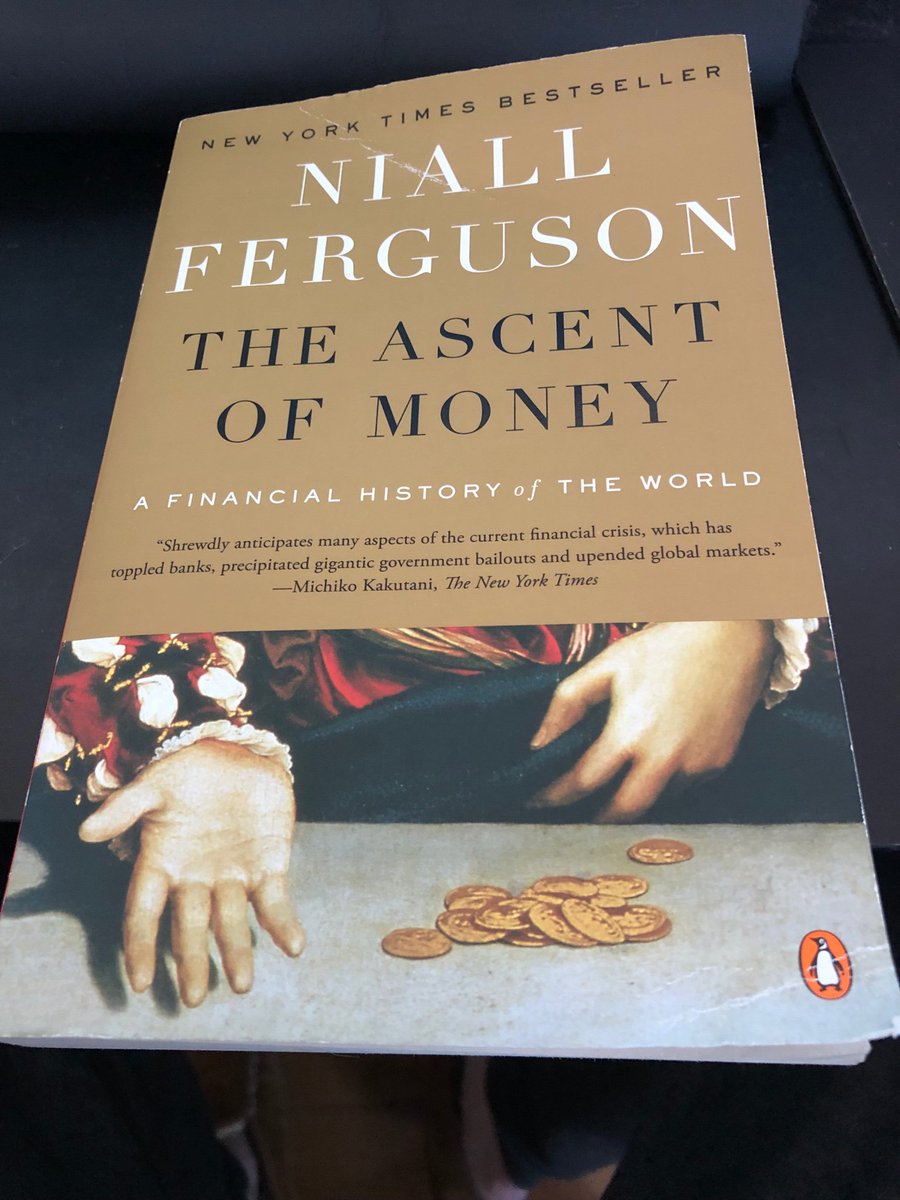Starting a thread of books I finish in 2018.
Book 1
Lesson: think through the second- and third-order effects that might result from a short-term fix
Book 1
Lesson: think through the second- and third-order effects that might result from a short-term fix
Book 2
Lessons:
Technical insights come from deep understanding of the rules you& #39;re playing by.
Often, your customers are so used to the status quo that you need to inform them of their problem before you can sell them the solution.
Lessons:
Technical insights come from deep understanding of the rules you& #39;re playing by.
Often, your customers are so used to the status quo that you need to inform them of their problem before you can sell them the solution.
Book 3
Lesson:
There are four questions you should ask of the books you read:
What is the book about as a whole?
What is being said, and how?
Is it true?
What of it?
Lesson:
There are four questions you should ask of the books you read:
What is the book about as a whole?
What is being said, and how?
Is it true?
What of it?
Book 4
Lesson:
For structural reasons (corp structure + ownership, advertising business models, sourcing issues), mainstream press in the US has longed served a propaganda function for elite interests that constrains critical analysis of gov and other power
Lesson:
For structural reasons (corp structure + ownership, advertising business models, sourcing issues), mainstream press in the US has longed served a propaganda function for elite interests that constrains critical analysis of gov and other power
Book 5
Lesson:
People stand by the gods they need; those whose demands of them enforce the demands they place on themselves.
Lesson:
People stand by the gods they need; those whose demands of them enforce the demands they place on themselves.
Book 6
Lesson:
The tension between globalization, nation-states, and democracy will generate some of the most important domestic and international conflicts in the 21st century
Lesson:
The tension between globalization, nation-states, and democracy will generate some of the most important domestic and international conflicts in the 21st century
Book 7
Lesson:
Many coordination problems can be solved by generating common knowledge; some kinds of products are “social goods” which gain network effects via common knowledge of how/when they are used.
Lesson:
Many coordination problems can be solved by generating common knowledge; some kinds of products are “social goods” which gain network effects via common knowledge of how/when they are used.
Book 8
Lesson:
Don’t underestimate the potential impact of new knowledge as a symbol. New discoveries have second- and third-order effects beyond their direct applications.
Lesson:
Don’t underestimate the potential impact of new knowledge as a symbol. New discoveries have second- and third-order effects beyond their direct applications.
Book 9
Lesson:
When building something with many intertwining technical dependencies that need to form a cohesive whole, there’s a balance to strike between trusting technical leads while guiding the trade-offs they make
Lesson:
When building something with many intertwining technical dependencies that need to form a cohesive whole, there’s a balance to strike between trusting technical leads while guiding the trade-offs they make
Book 10
Lesson:
The potential scale of a complex adaptive system (organism, city, company) is determined by the efficacy/efficiency of the networks it is composed of at moving around energy, information, and physical resources
Lesson:
The potential scale of a complex adaptive system (organism, city, company) is determined by the efficacy/efficiency of the networks it is composed of at moving around energy, information, and physical resources
Book 11
Lesson:
The brain has a set of automatic responses that can be triggered to shape our decision-making. Monitoring the factors you’re basing decisions off of and the emotions you’re feeling can mitigate their effect.
Lesson:
The brain has a set of automatic responses that can be triggered to shape our decision-making. Monitoring the factors you’re basing decisions off of and the emotions you’re feeling can mitigate their effect.
Book 12
Lesson:
Suffering can lead to growth and redemption. But we shouldn’t take that to mean we should let or make people suffer - the escape from those circumstances is what allows for improvement.
Lesson:
Suffering can lead to growth and redemption. But we shouldn’t take that to mean we should let or make people suffer - the escape from those circumstances is what allows for improvement.
Book 13
Lesson:
Our brains are wired to more readily accept new information that confirms our existing beliefs/vested interests than that which goes against them. To improve understanding/decision-making, actively try to invert this
Lesson:
Our brains are wired to more readily accept new information that confirms our existing beliefs/vested interests than that which goes against them. To improve understanding/decision-making, actively try to invert this
Book 14
Lesson:
The mindset required to win a game where the end goal is a title and the power that comes with it is different from that needed for games where the goal is to simply continue playing
Lesson:
The mindset required to win a game where the end goal is a title and the power that comes with it is different from that needed for games where the goal is to simply continue playing
Book 15
Lesson:
Building a product for the mainstream market requires adopting the mindset of the customer and thinking about how you can deliver the whole product - your offering + the other products/services needed to deliver on your promises
Lesson:
Building a product for the mainstream market requires adopting the mindset of the customer and thinking about how you can deliver the whole product - your offering + the other products/services needed to deliver on your promises
Book 16
Lesson:
What looks like disruptive innovation is often the latest manifestation of a decades-old theory, mindset, or vision in particularly propitious circumstances
Lesson:
What looks like disruptive innovation is often the latest manifestation of a decades-old theory, mindset, or vision in particularly propitious circumstances
Book 17
Lesson:
When you experience a setback, ask yourself:
Are the new circumstances permanent?
Will you always run into the reasons for the setback in your current effort?
Did the setback happen because of personal failings, or the external situation?
Lesson:
When you experience a setback, ask yourself:
Are the new circumstances permanent?
Will you always run into the reasons for the setback in your current effort?
Did the setback happen because of personal failings, or the external situation?
Book 18
Lesson:
Small wins fuel transformative changes by demonstrating patterns that convince us bigger achievements are within reach.
Lesson:
Small wins fuel transformative changes by demonstrating patterns that convince us bigger achievements are within reach.
Book 19
Lesson:
You can mitigate errors in your decision making by building a latticework of mental models about how the world works and cultivating a habit of looking for signs of bias in your own thinking.
Lesson:
You can mitigate errors in your decision making by building a latticework of mental models about how the world works and cultivating a habit of looking for signs of bias in your own thinking.
Book 20
Lesson:
Distinction is not separation. To understand something, you must also understand its relationships with other parts of the environment or context around it.
Lesson:
Distinction is not separation. To understand something, you must also understand its relationships with other parts of the environment or context around it.
Book 21
Lesson:
A product leader succeeds by bringing together a team motivated to build and learn and regularly communicating a shared product vision aimed at providing value to a customer.
Lesson:
A product leader succeeds by bringing together a team motivated to build and learn and regularly communicating a shared product vision aimed at providing value to a customer.
Book 22
Lesson:
Even the creative geniuses whose work transcends their time were extending, remixing, or responding to the techniques and themes prevalent in the context around them.
Lesson:
Even the creative geniuses whose work transcends their time were extending, remixing, or responding to the techniques and themes prevalent in the context around them.
Book 23
Lesson:
Once you account for the difficulty of predicting future securities prices, transaction costs, other intermediary fees, and taxes, a low-cost, all-market index fund looks like a pretty good place for most to invest for the long term.
Lesson:
Once you account for the difficulty of predicting future securities prices, transaction costs, other intermediary fees, and taxes, a low-cost, all-market index fund looks like a pretty good place for most to invest for the long term.
Book 24
Lesson:
To build good mental models of how the world works, we need a general awareness of the fundamentals of various disciplines + the ability to think metaphorically
Lesson:
To build good mental models of how the world works, we need a general awareness of the fundamentals of various disciplines + the ability to think metaphorically
Book 25
Lesson:
"Real artists/creators/entrepreneurs" don& #39;t go through life without experiencing self-doubt. They& #39;ve simply learned to live with the doubt and do the work anyway.
Lesson:
"Real artists/creators/entrepreneurs" don& #39;t go through life without experiencing self-doubt. They& #39;ve simply learned to live with the doubt and do the work anyway.
Book 26
Lesson:
Power comes from directing the flow of information, patience, willpower, and a strong theory of mind.
Lesson:
Power comes from directing the flow of information, patience, willpower, and a strong theory of mind.
Book 27
Lesson:
To achieve high performance as an individual, you need to set goals beyond what you’ve accomplished in the past. To achieve high performance as an organization, you need to align contributors in the same direction.
Lesson:
To achieve high performance as an individual, you need to set goals beyond what you’ve accomplished in the past. To achieve high performance as an organization, you need to align contributors in the same direction.
Book 28
Lesson:
Embedded in human psychology (and the resulting symbolism we find compelling) is a wish for our struggles to be meaningful, for our suffering to have value, for our effort to pay off for ourselves and those we love - and to then be recognized for it.
Lesson:
Embedded in human psychology (and the resulting symbolism we find compelling) is a wish for our struggles to be meaningful, for our suffering to have value, for our effort to pay off for ourselves and those we love - and to then be recognized for it.
Book 29
Lesson:
The only lasting competency is the ability to continuously assess industry/tech dynamics and build capability chains that exploit current opportunities and anticipate future ones.
Lesson:
The only lasting competency is the ability to continuously assess industry/tech dynamics and build capability chains that exploit current opportunities and anticipate future ones.
Book 30
Lesson:
We& #39;ve got a few high-ROI tools for confronting inequality:
- Provide low income individuals and families the tools they need to make better decisions and plan for the future
- Shift norms toward life-long learning
- Value and invest in care work
Lesson:
We& #39;ve got a few high-ROI tools for confronting inequality:
- Provide low income individuals and families the tools they need to make better decisions and plan for the future
- Shift norms toward life-long learning
- Value and invest in care work
Book 31
Lesson:
Power exists in the moment it& #39;s exercised. Its use shapes the wielder and the power itself.
Lesson:
Power exists in the moment it& #39;s exercised. Its use shapes the wielder and the power itself.
Book 32
Lesson:
Modernist states try to simplify their environments to allow for measurement, management, and appropriation, to the detriment of the emergent, adaptive, practical, and local. Informal improvisation is required to sustain formal systems.
Lesson:
Modernist states try to simplify their environments to allow for measurement, management, and appropriation, to the detriment of the emergent, adaptive, practical, and local. Informal improvisation is required to sustain formal systems.
Book 34
Lesson:
Autocratic leaders want to minimize the size of the coalition that can keep them in power and maximize the private rewards allocated to that coalition.
Lesson:
Autocratic leaders want to minimize the size of the coalition that can keep them in power and maximize the private rewards allocated to that coalition.
Book 36
Lesson:
People will opt-in to brain-computer interfaces because they will give us explicit control over our own motivations, willpower, and mood.
Lesson:
People will opt-in to brain-computer interfaces because they will give us explicit control over our own motivations, willpower, and mood.
Book 37
Lesson:
In consumer psychology, there is a tension between the attraction to the new and the fear of the unfamiliar. Attempting to innovate while hitting expectations is inherently risky.
Lesson:
In consumer psychology, there is a tension between the attraction to the new and the fear of the unfamiliar. Attempting to innovate while hitting expectations is inherently risky.
Book 38
Lesson:
The 20th century isn’t a big enough sample set to draw from to understand the range of societal responses to radical change. Things can get much, MUCH worse.
Lesson:
The 20th century isn’t a big enough sample set to draw from to understand the range of societal responses to radical change. Things can get much, MUCH worse.
Book 40
Lesson:
Designing your startup as a system, you want external-facing systems to exhibit positive reinforcing feedback loops and internal-facing systems to drift to high performance.
Lesson:
Designing your startup as a system, you want external-facing systems to exhibit positive reinforcing feedback loops and internal-facing systems to drift to high performance.
Book 41
Lesson:
It’s only in the birth of societies/companies that we can easily follow principles to their conclusions and ignore the conflicting interests around us; this is not because of wisdom, but youth.
Lesson:
It’s only in the birth of societies/companies that we can easily follow principles to their conclusions and ignore the conflicting interests around us; this is not because of wisdom, but youth.
Book 42
Lesson:
We can get trapped in the narratives we imagine around us. Reality is not a structured plot.
Lesson:
We can get trapped in the narratives we imagine around us. Reality is not a structured plot.
Book 43
Lesson:
The most important question you can ask to solve a problem: "Has anyone ever made any progress solving any pieces of this puzzle?"
Lesson:
The most important question you can ask to solve a problem: "Has anyone ever made any progress solving any pieces of this puzzle?"
Book 44
Lesson:
Our illusions come from accepting abstractions as reality. They drive us toward disaster when processes become ends in themselves.
Lesson:
Our illusions come from accepting abstractions as reality. They drive us toward disaster when processes become ends in themselves.
Book 45
Lessons:
People can’t start over, lives go on. Resentment comes from people not living up to the abstraction of them that we hold in our mind.
Lessons:
People can’t start over, lives go on. Resentment comes from people not living up to the abstraction of them that we hold in our mind.

 Read on Twitter
Read on Twitter